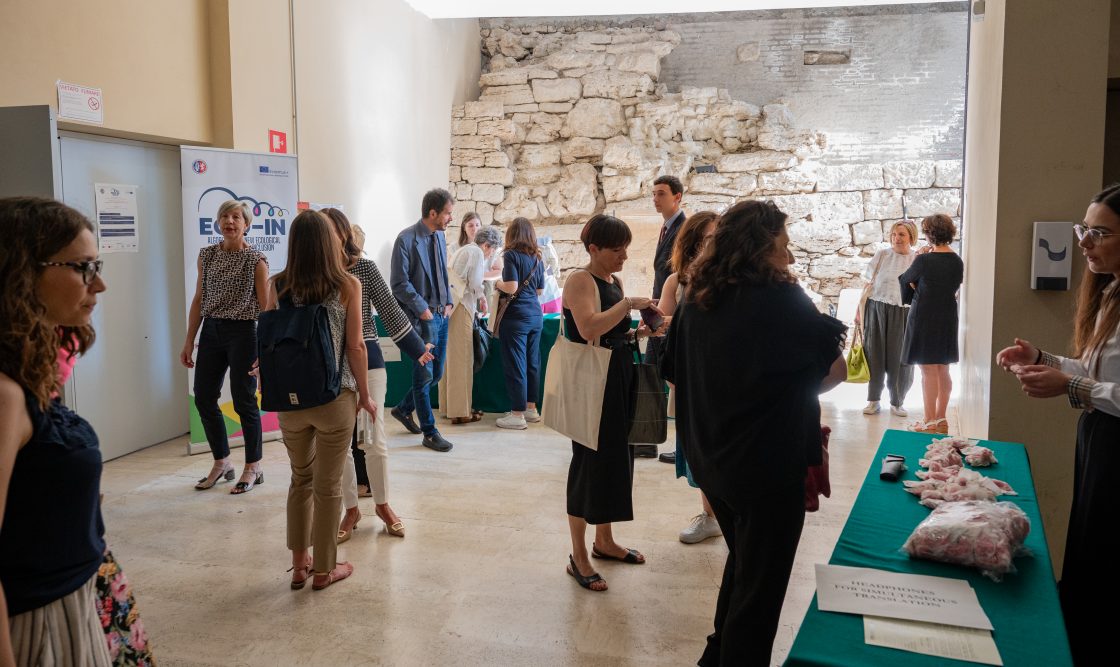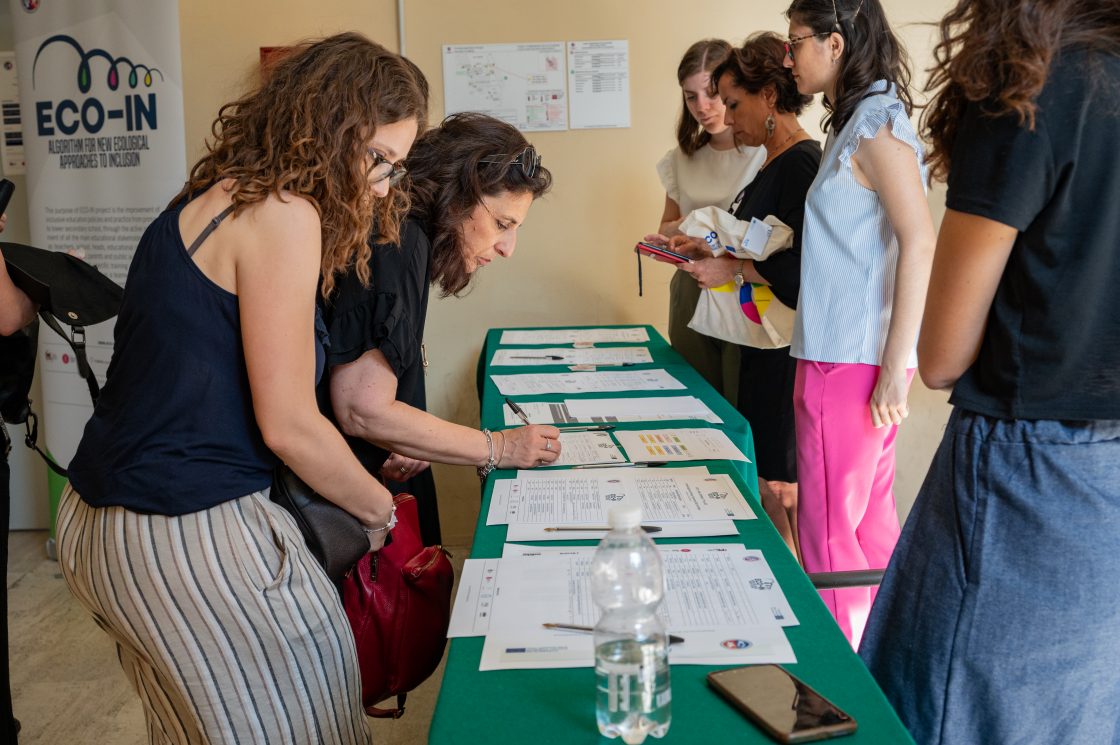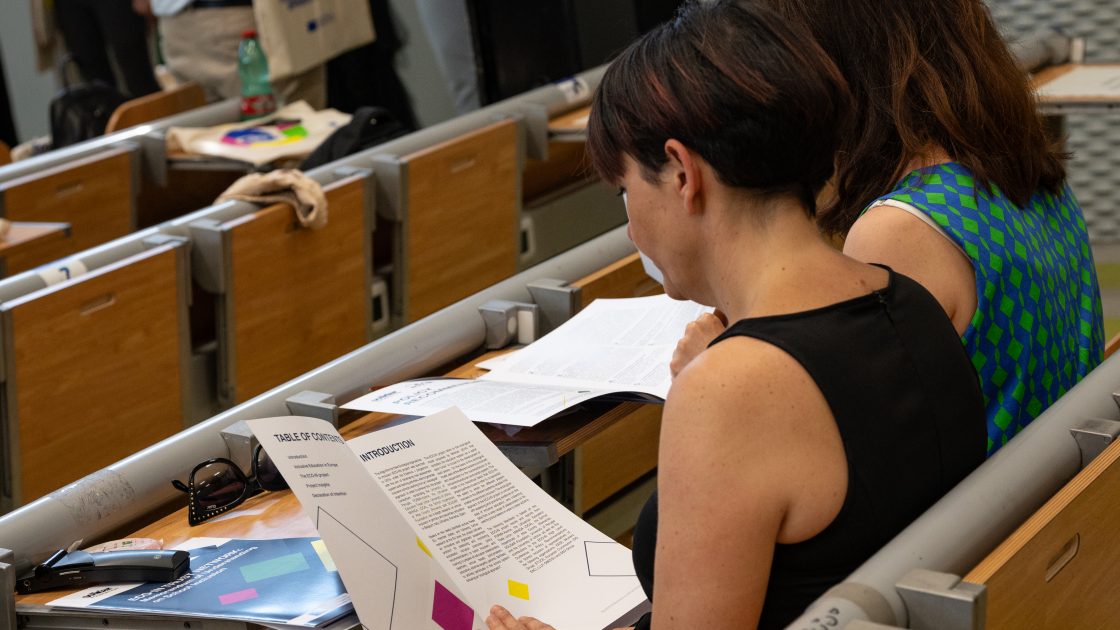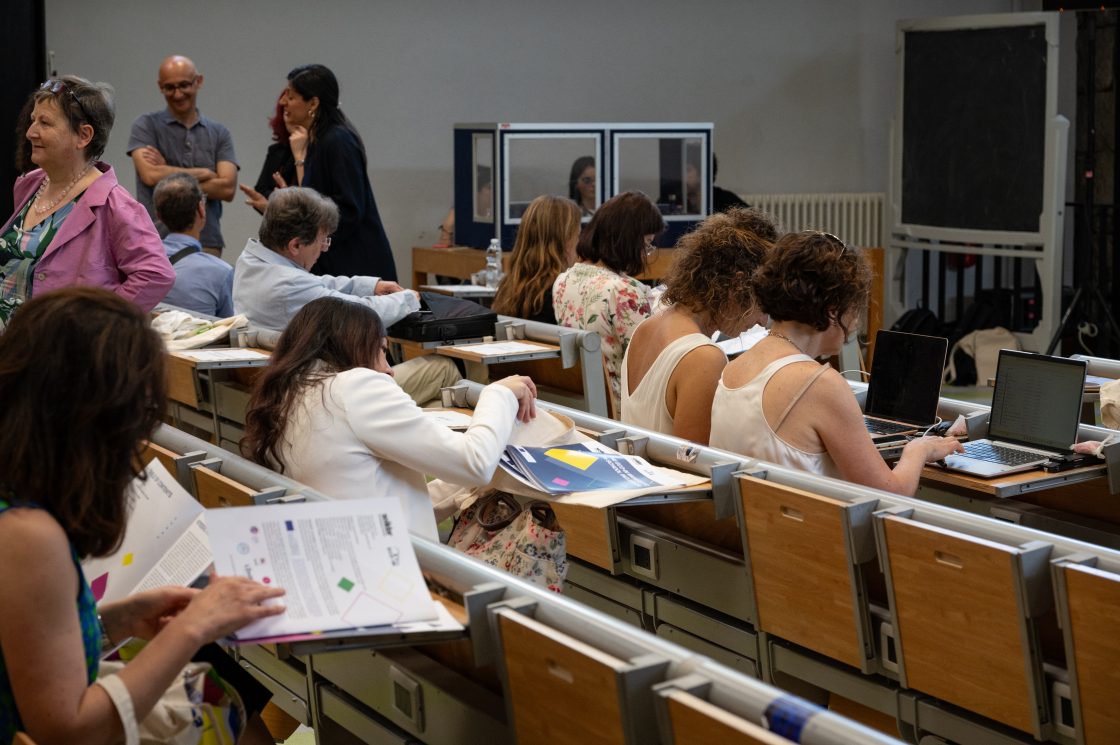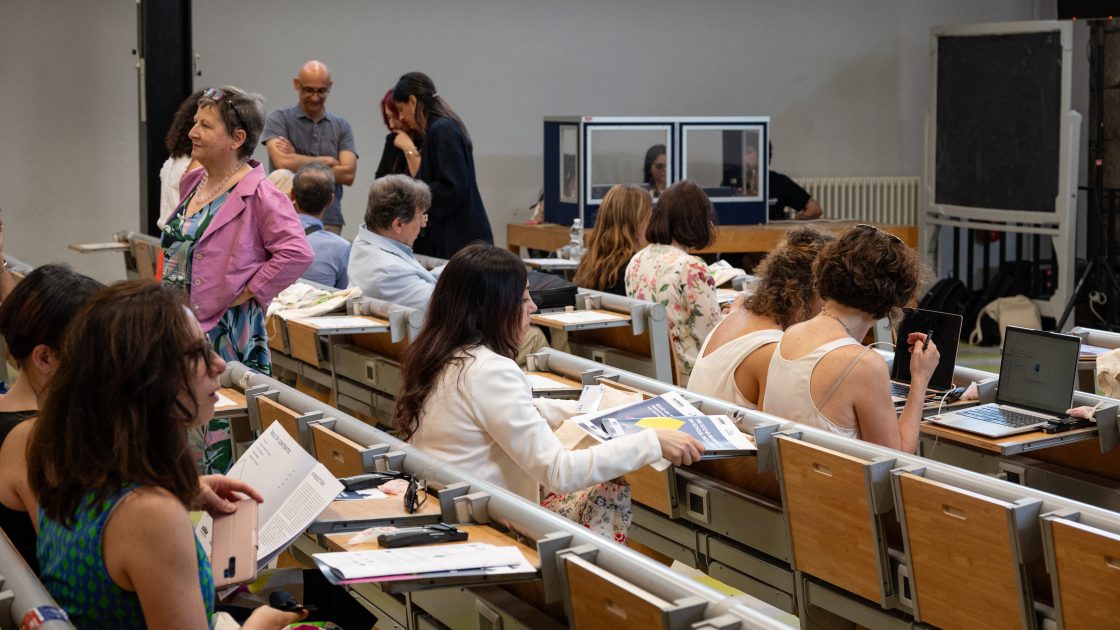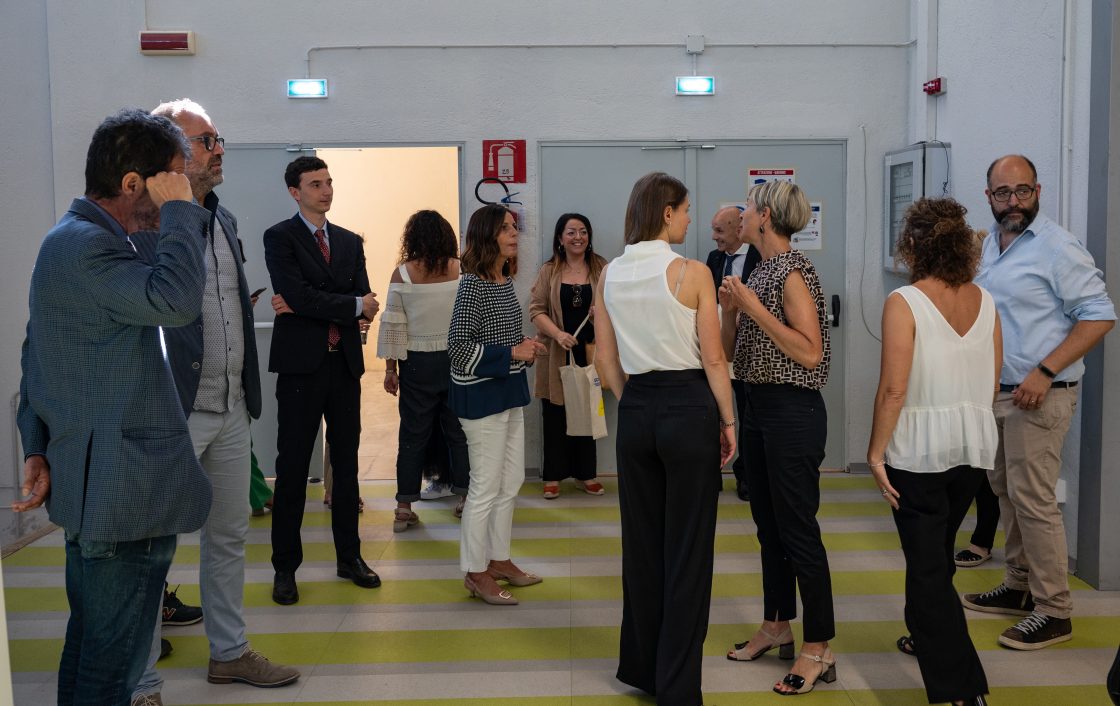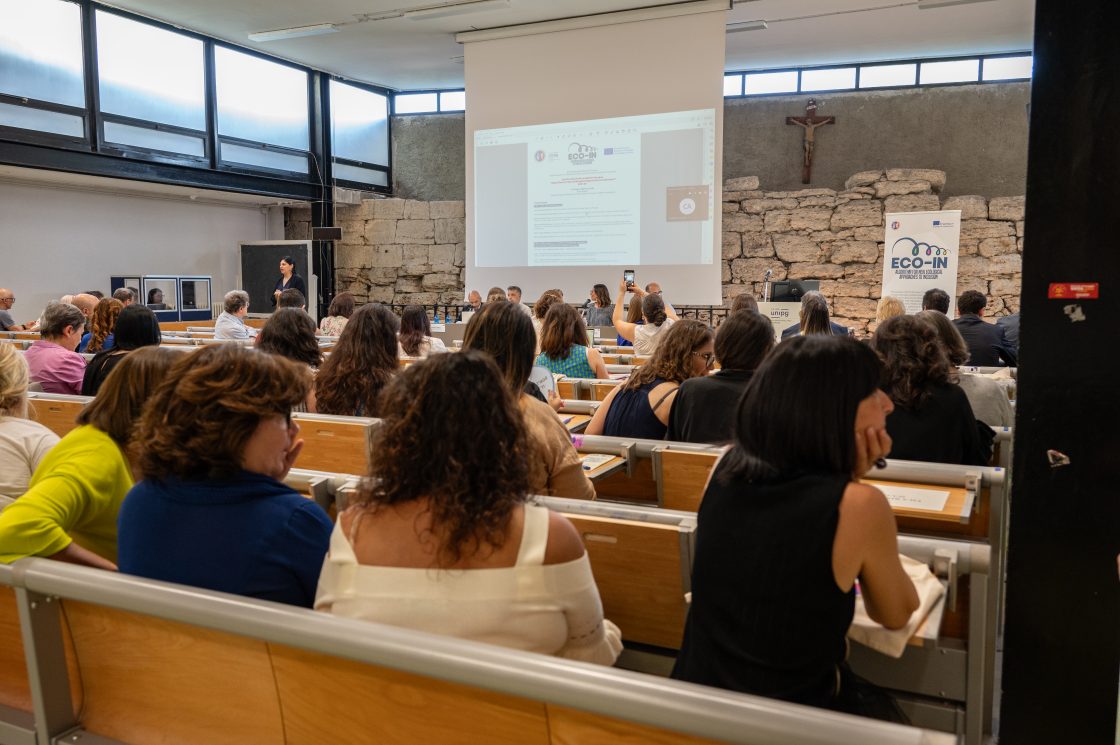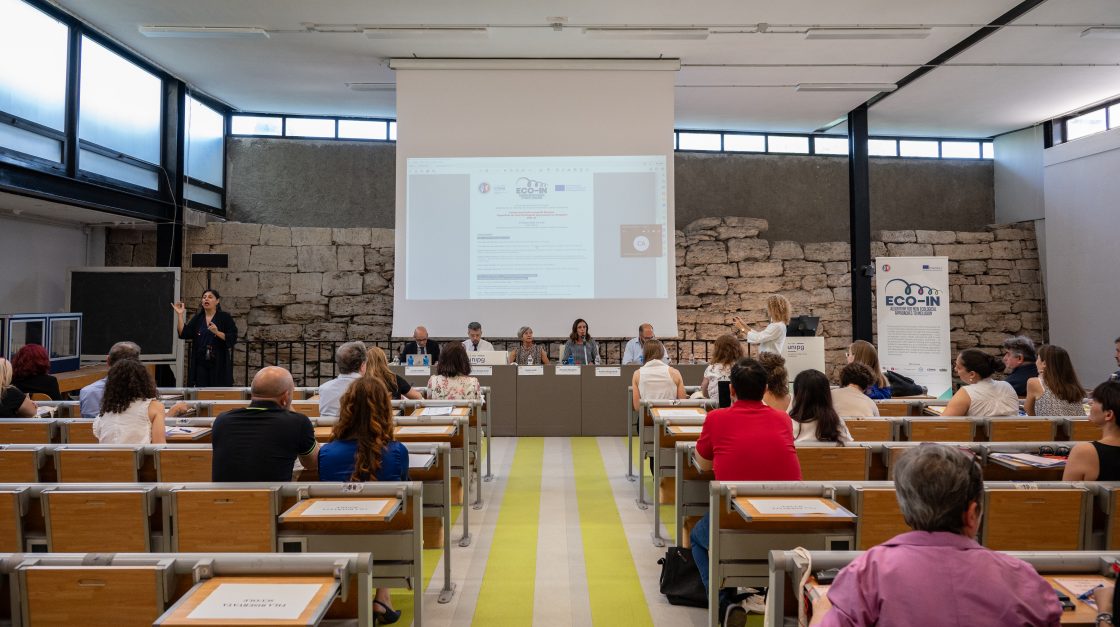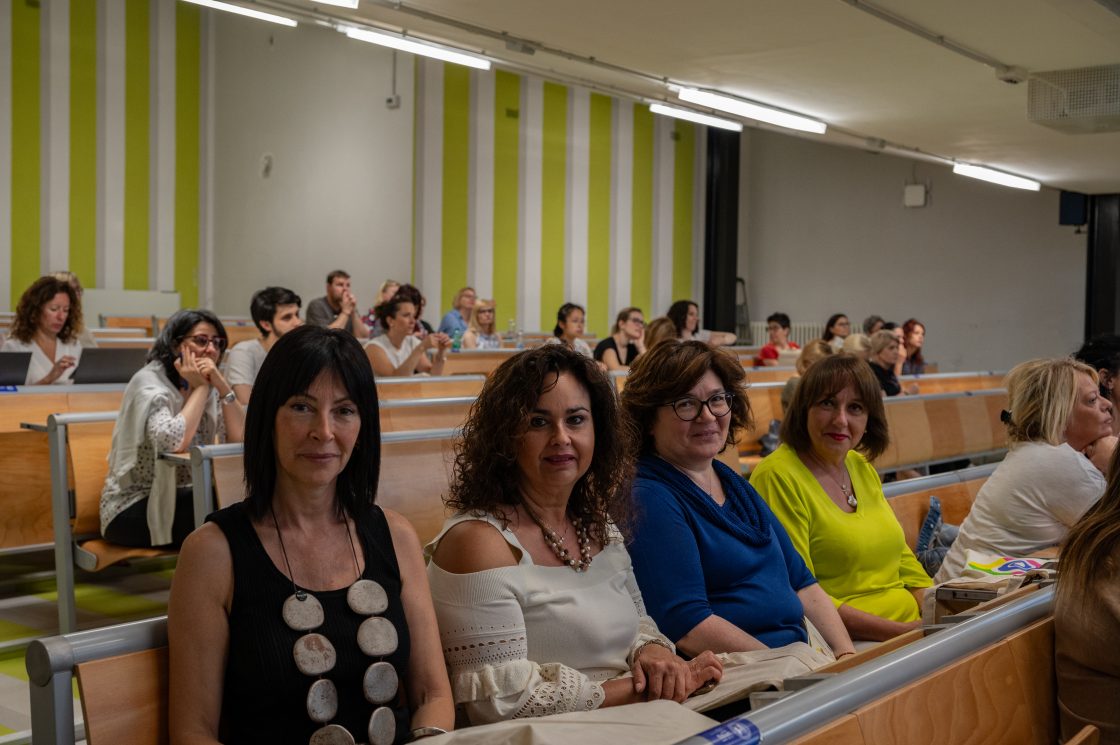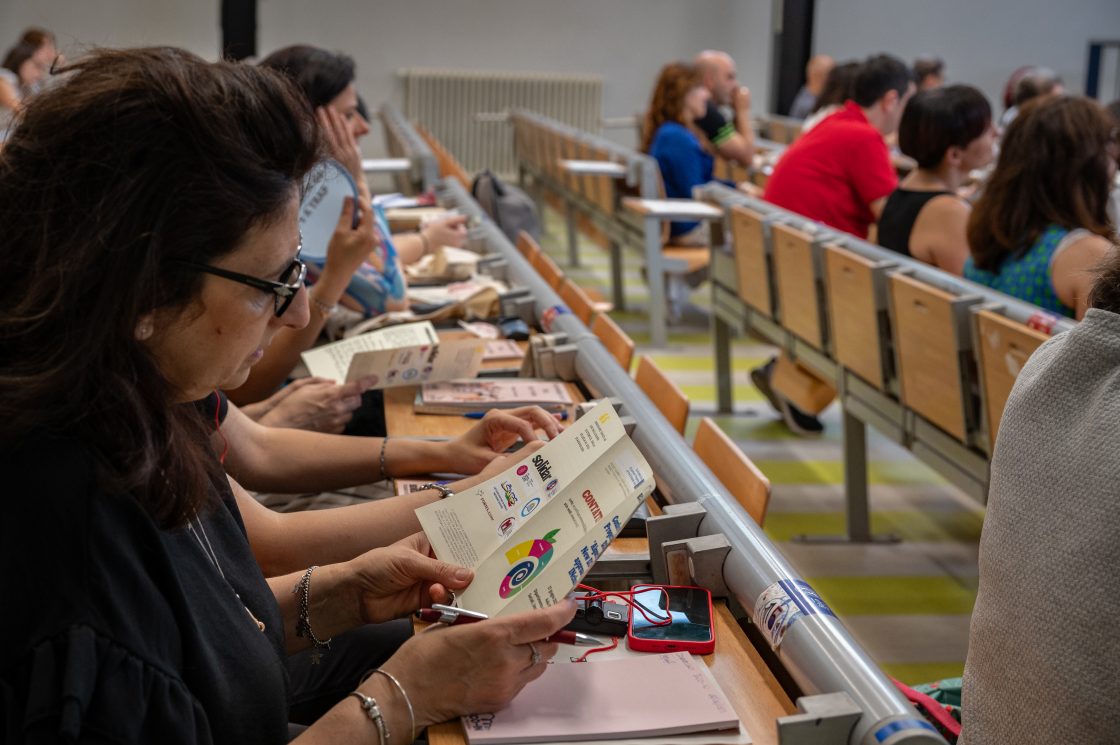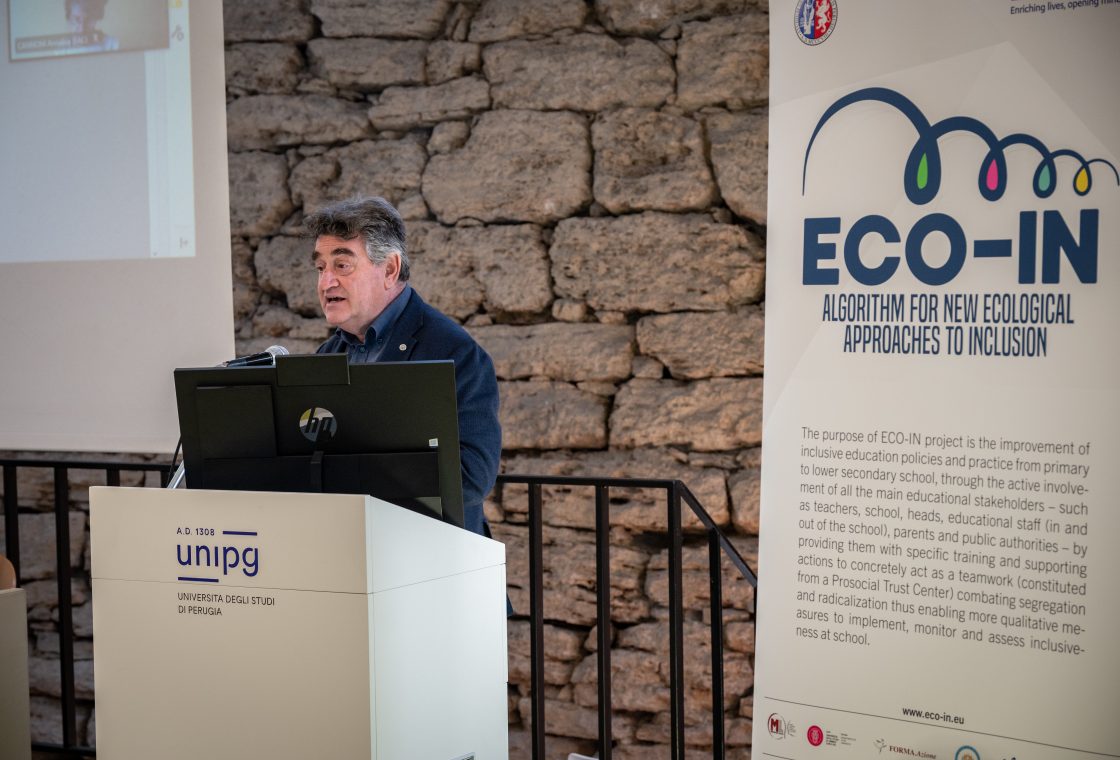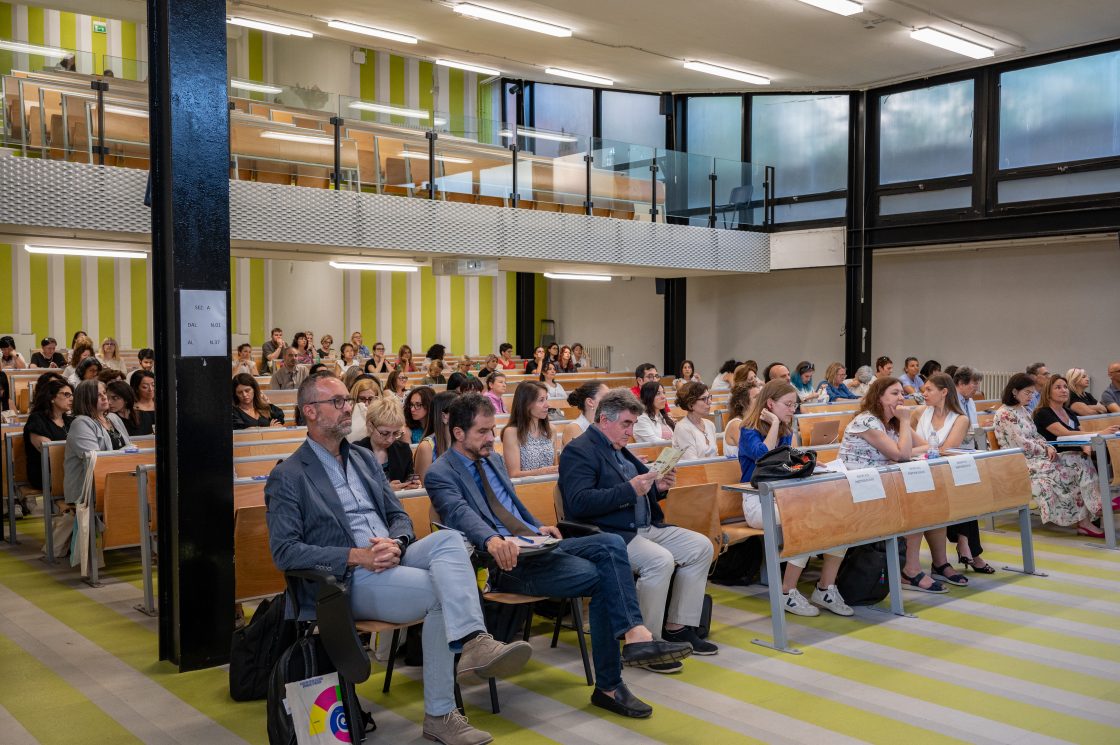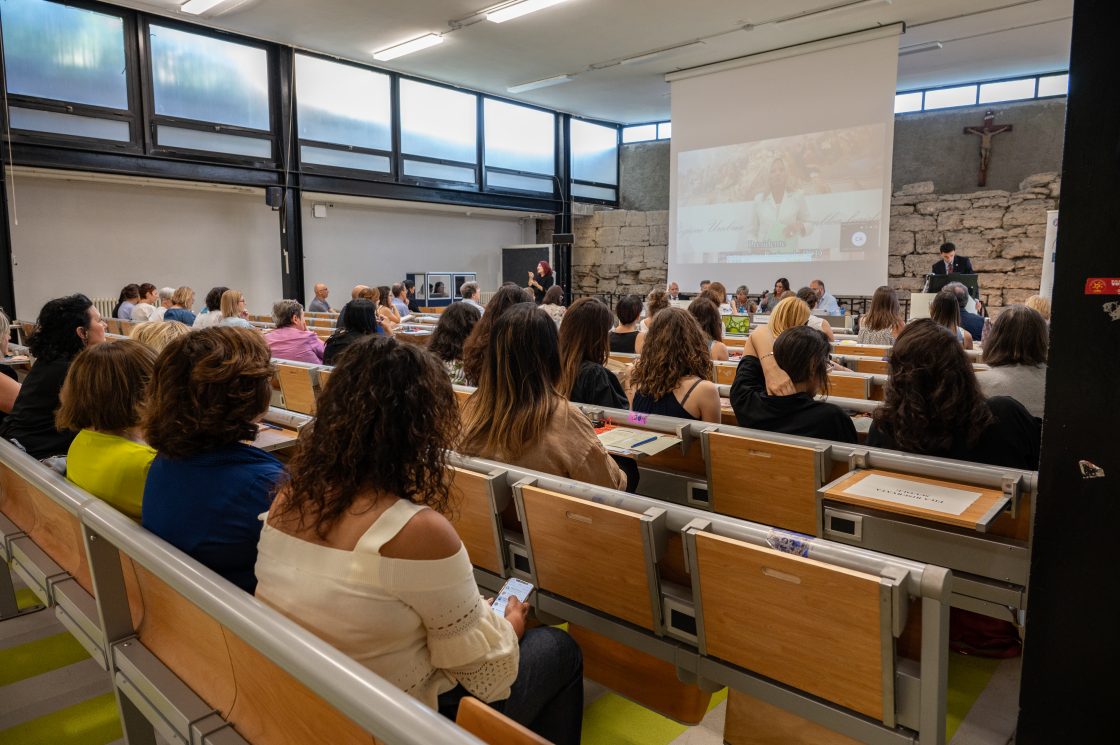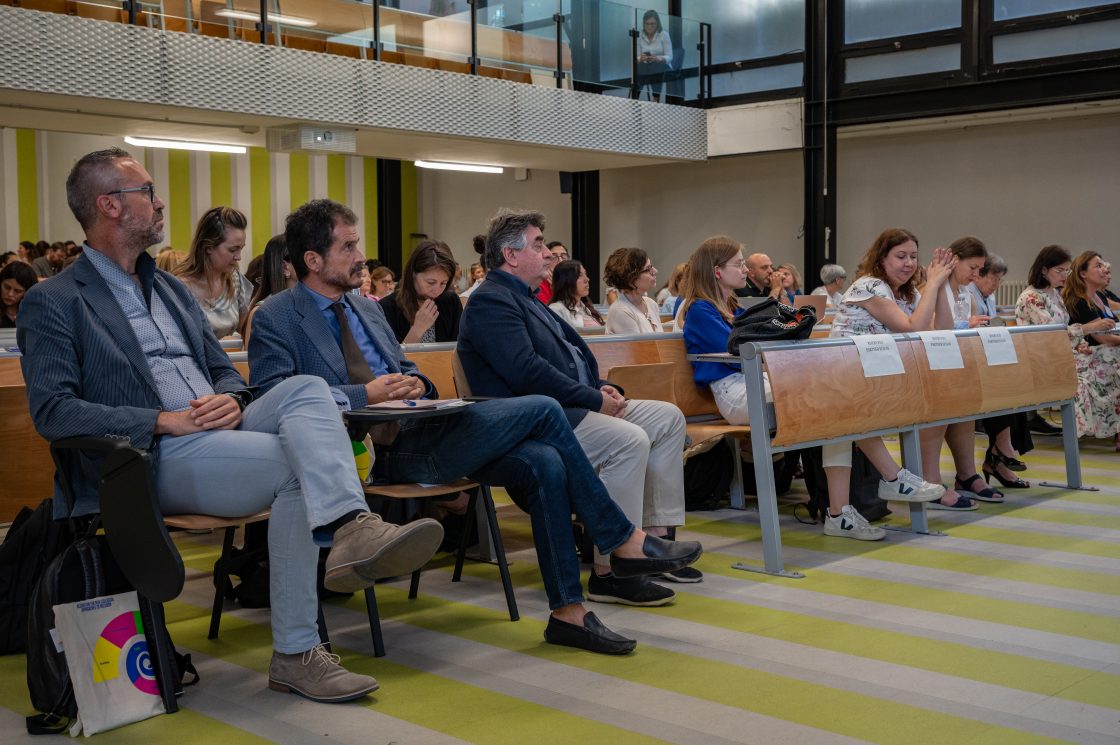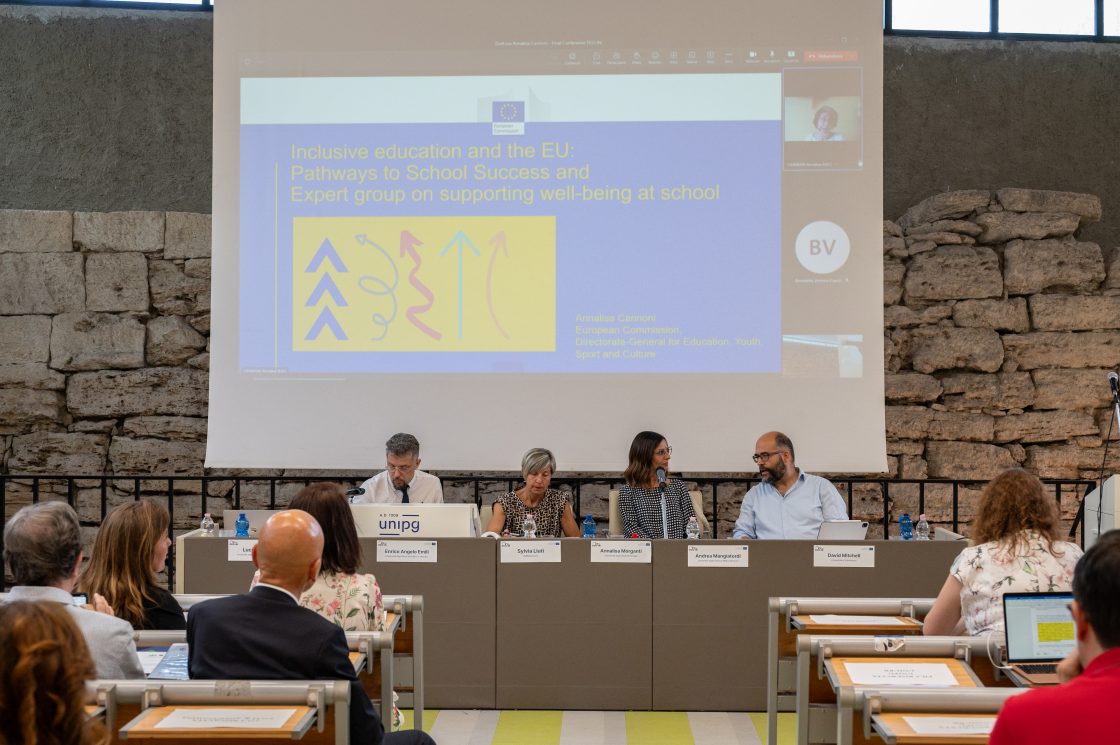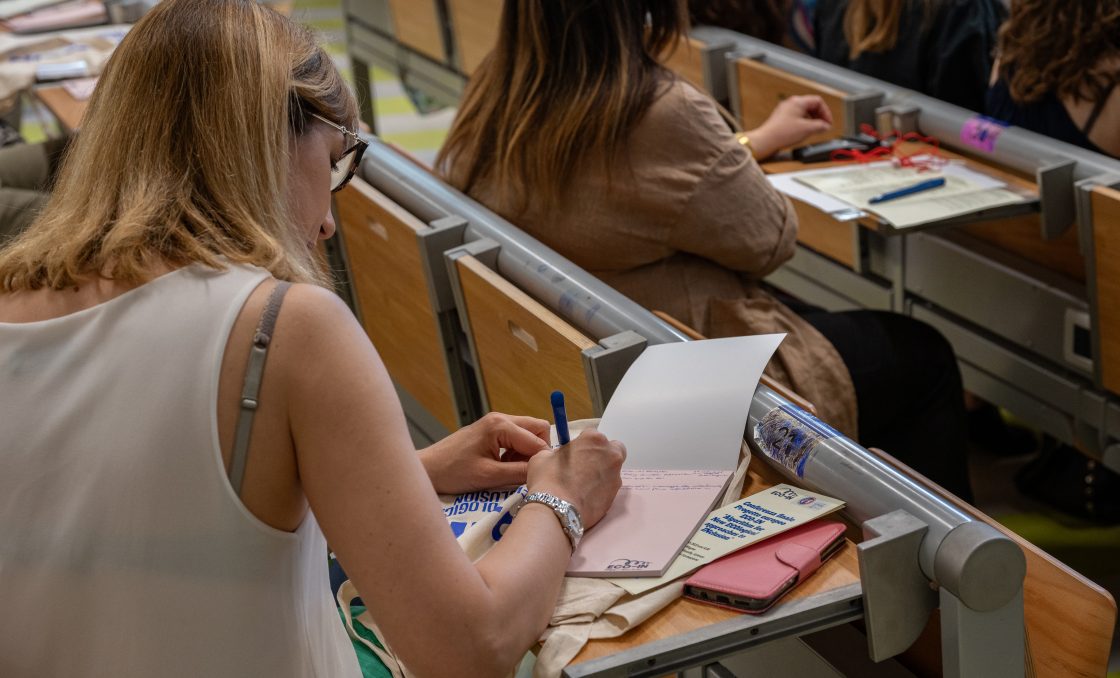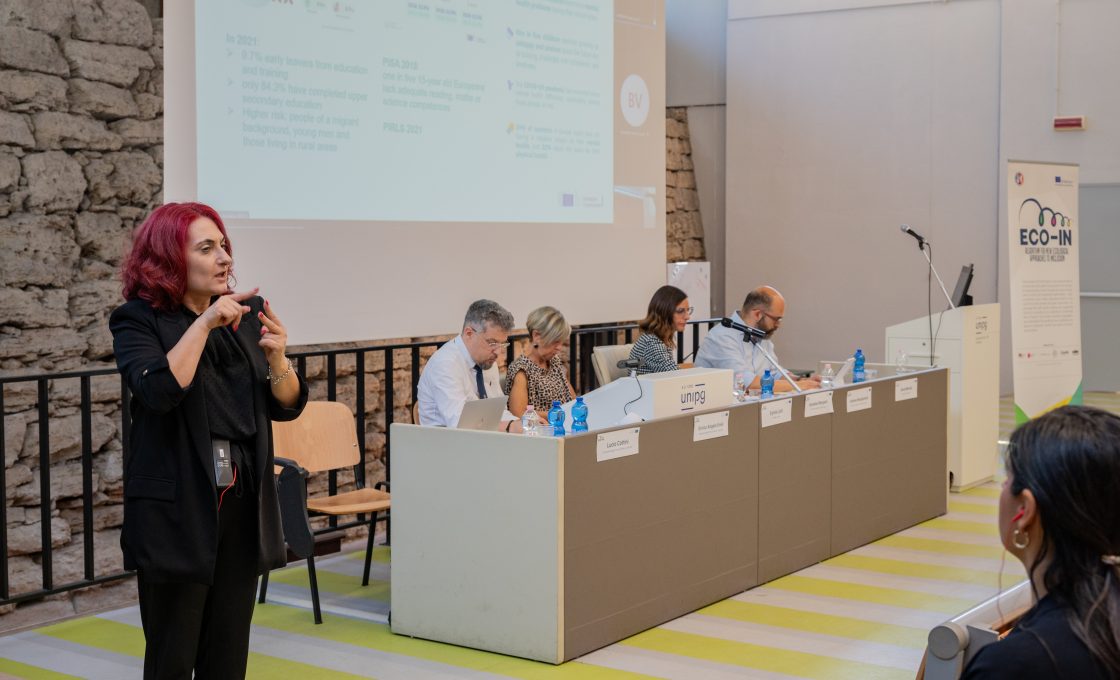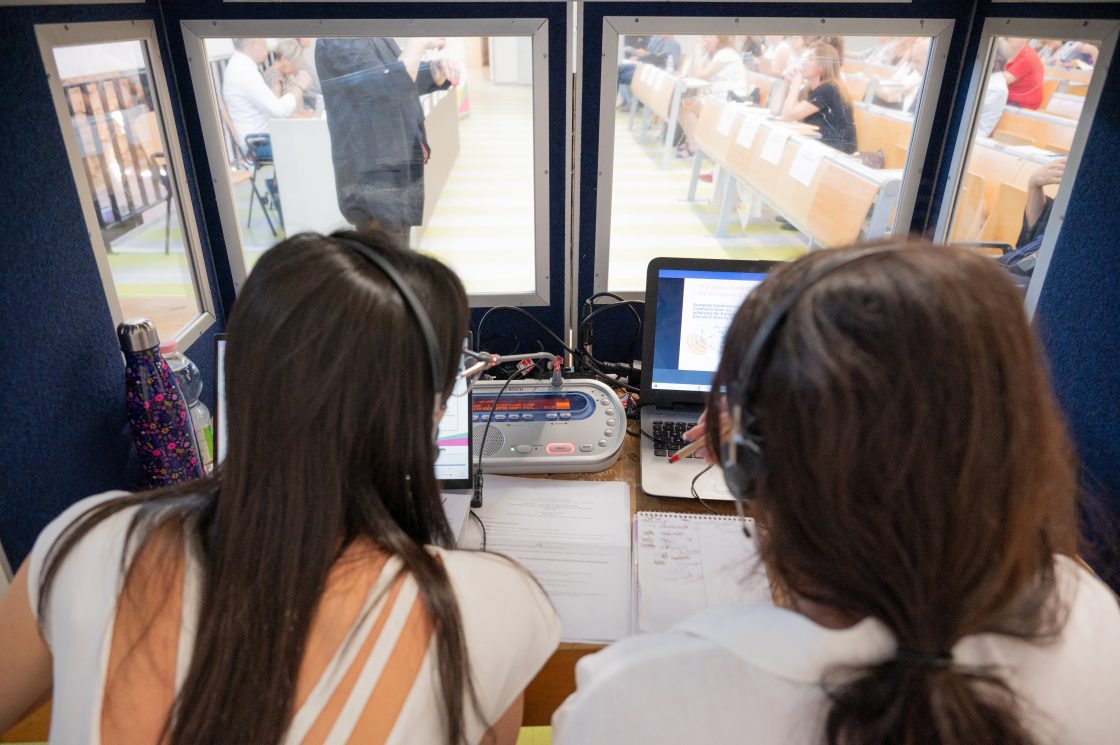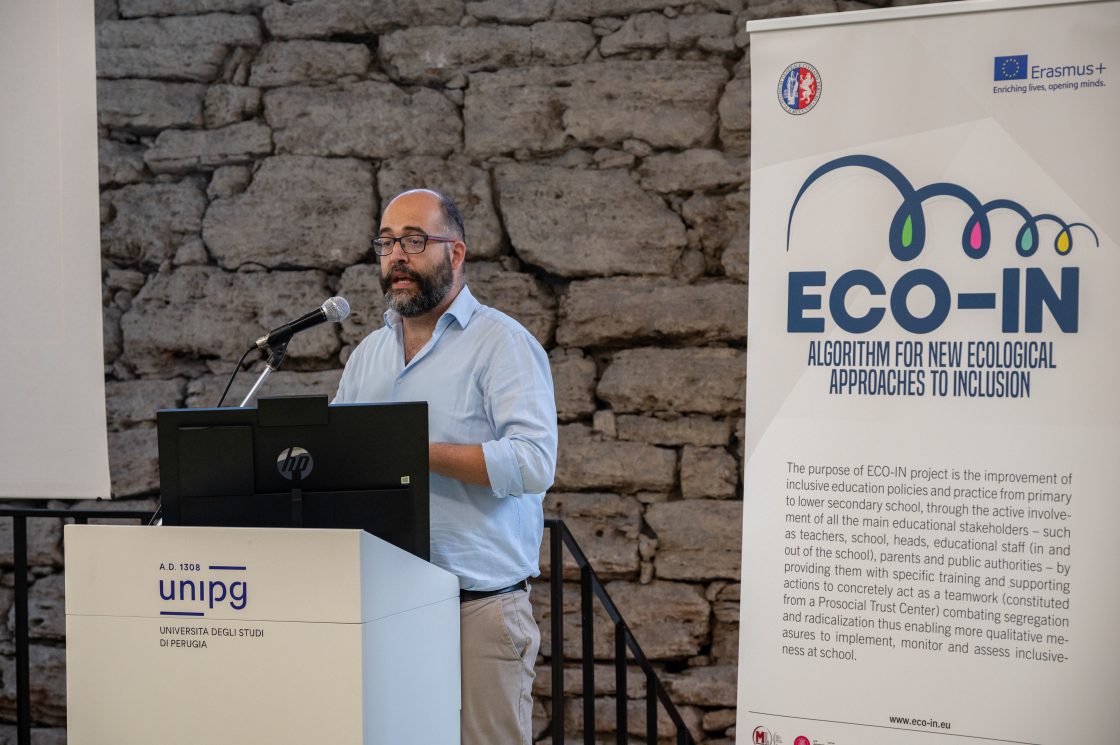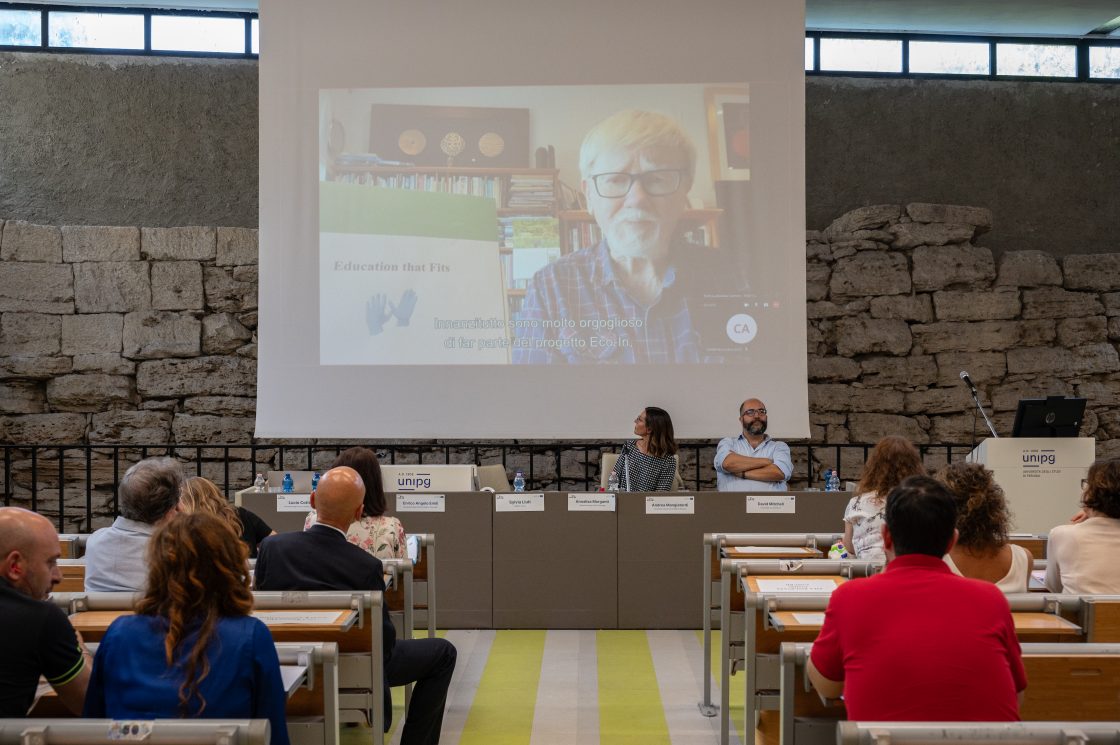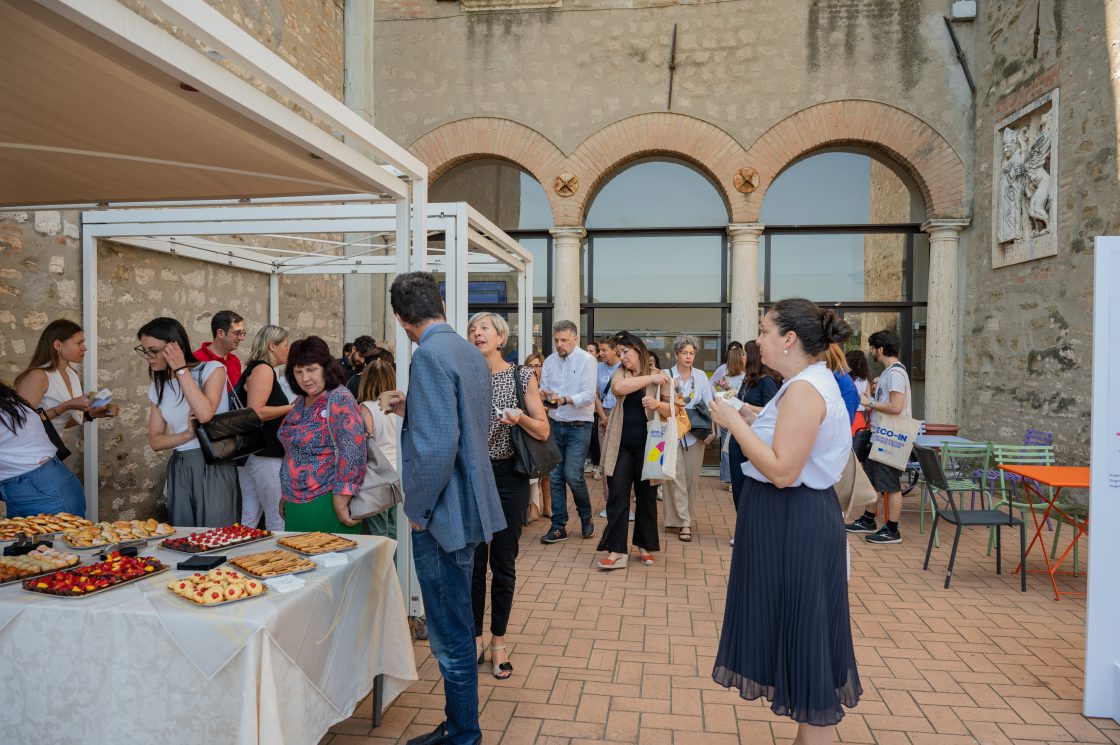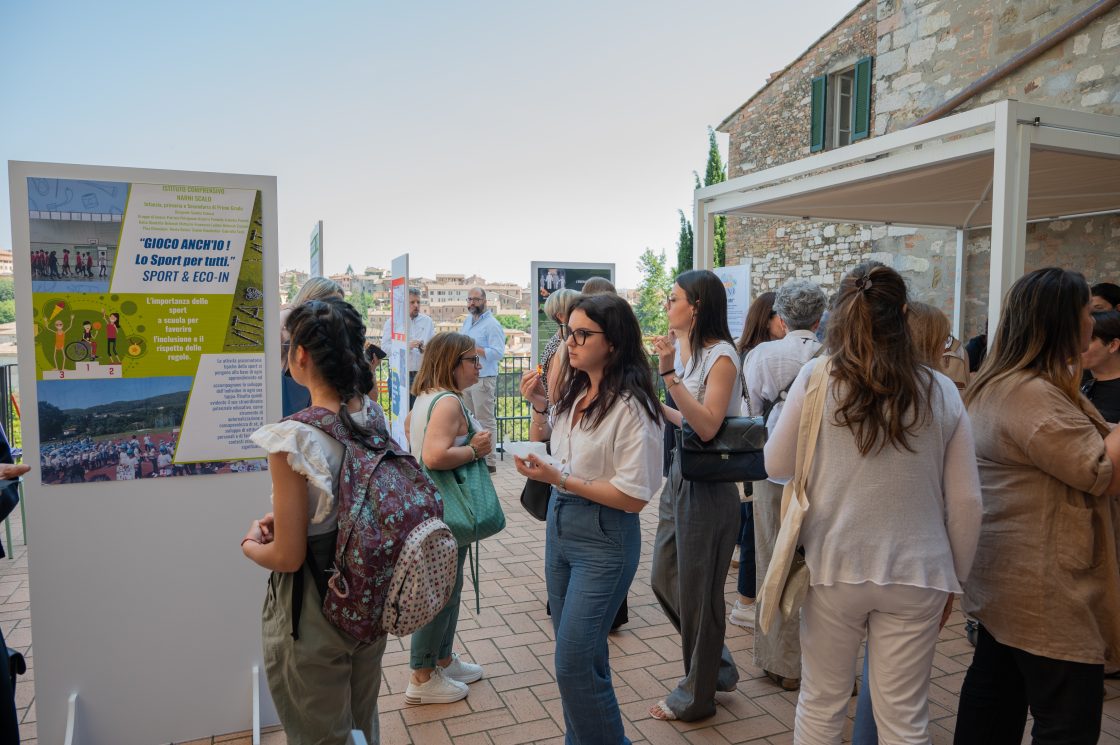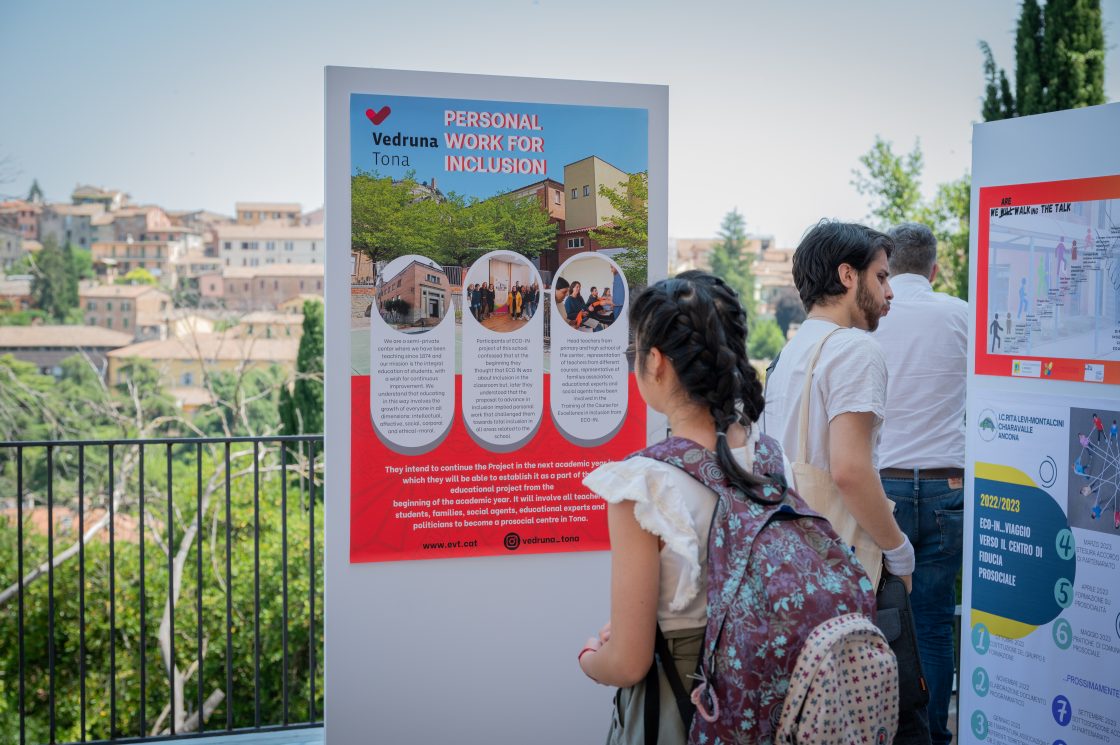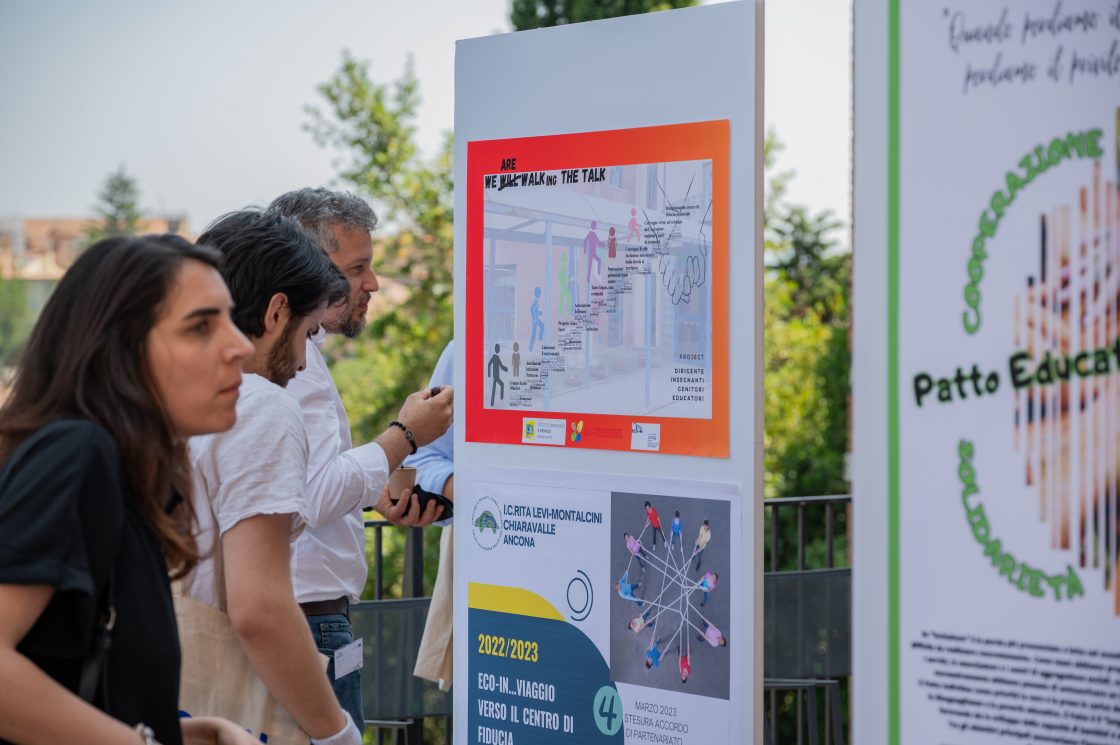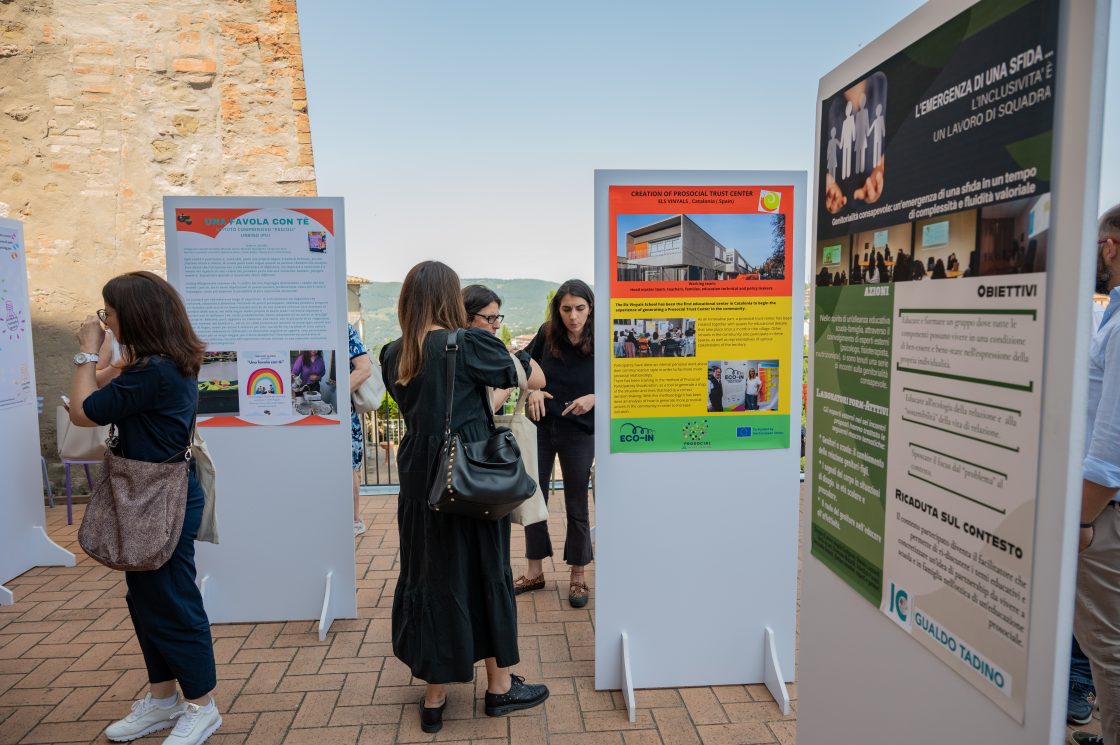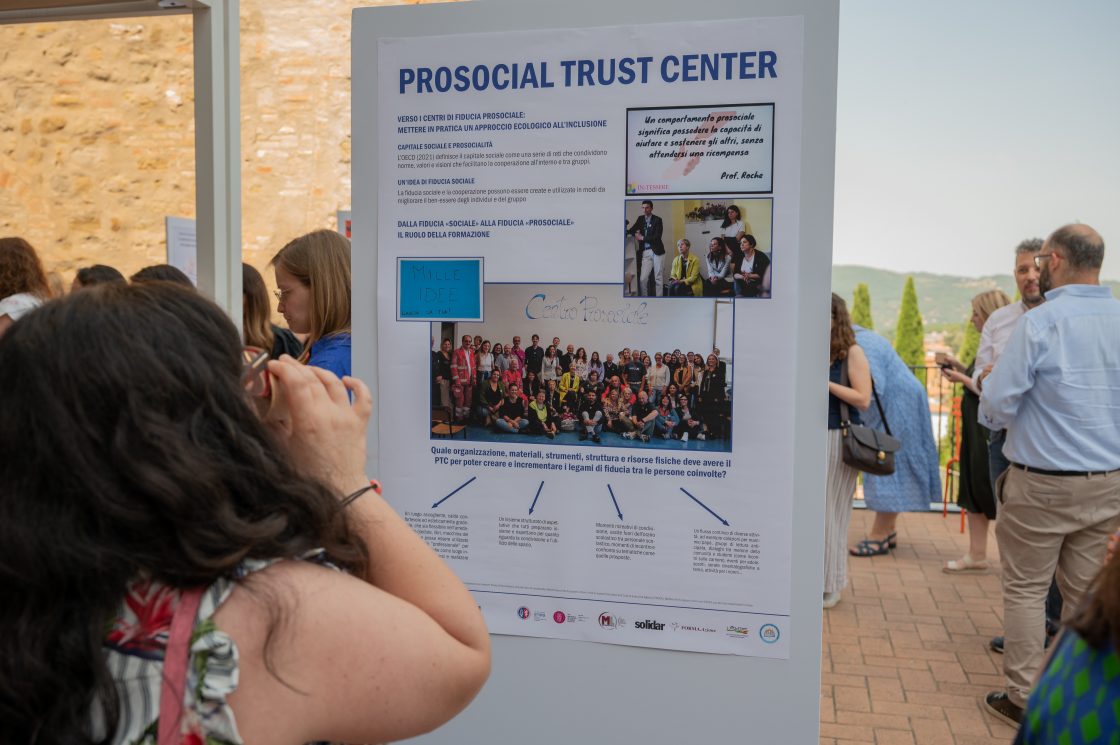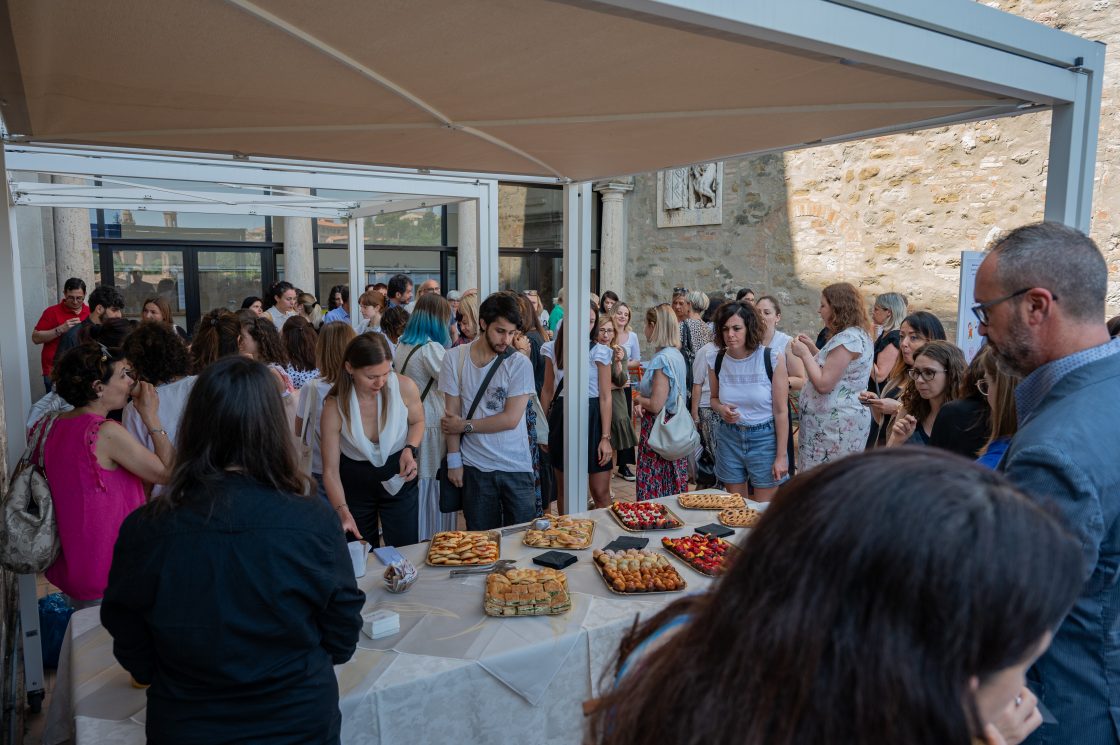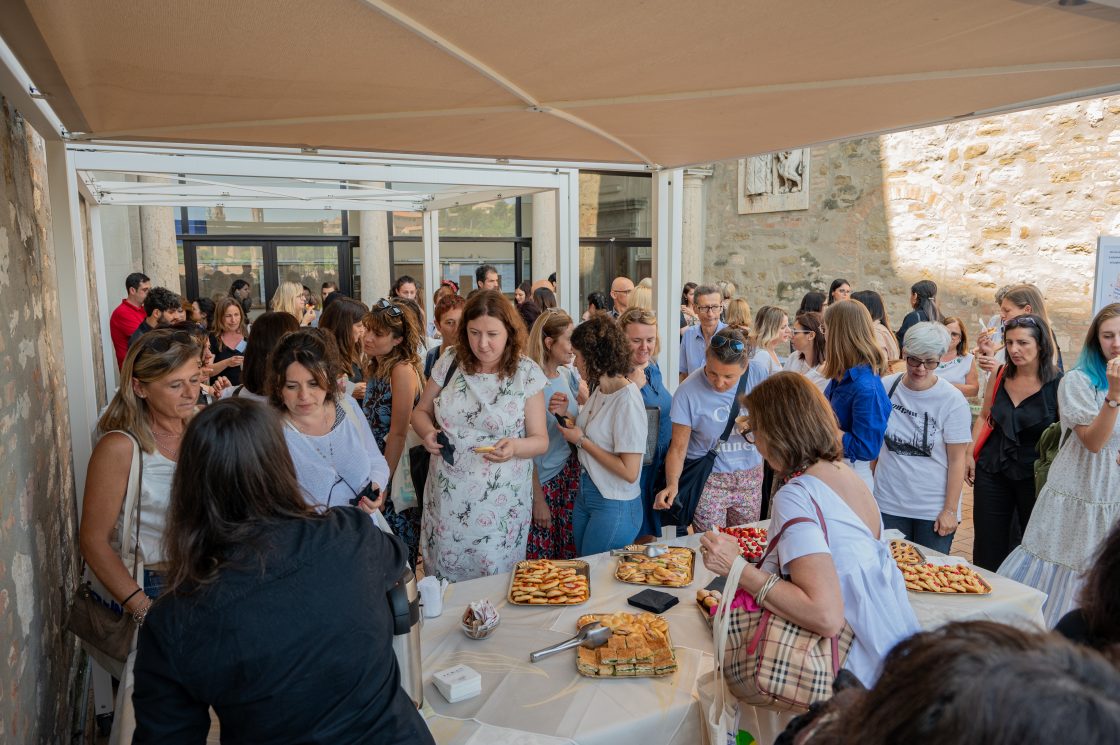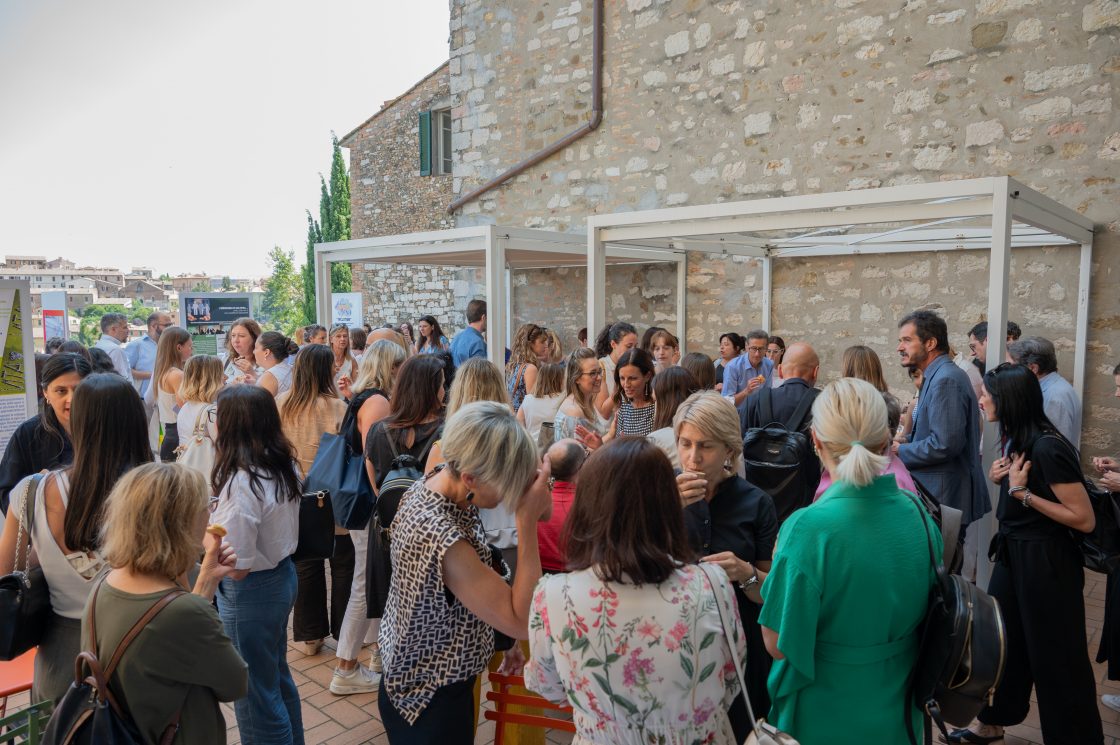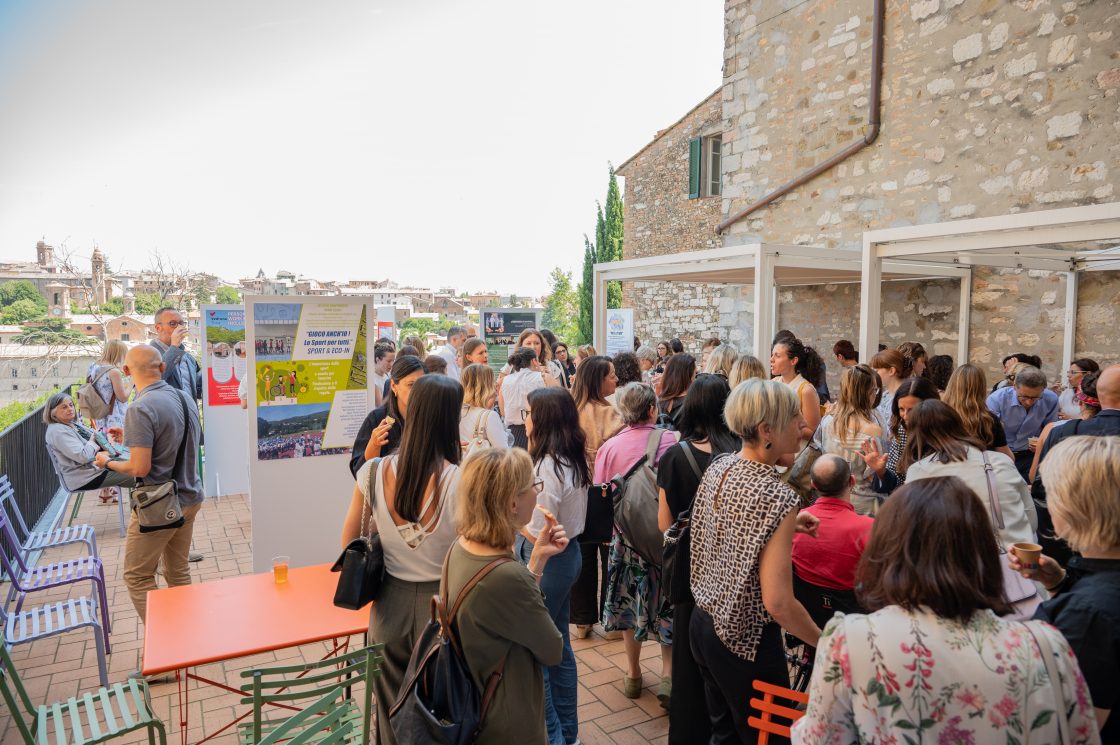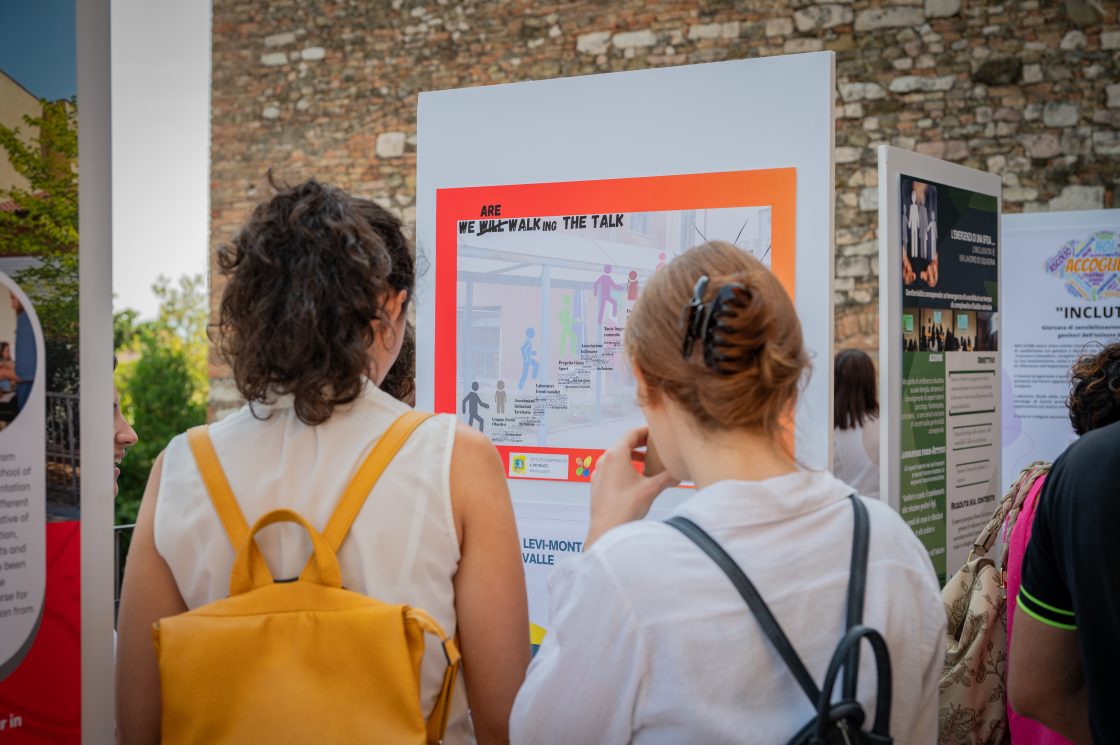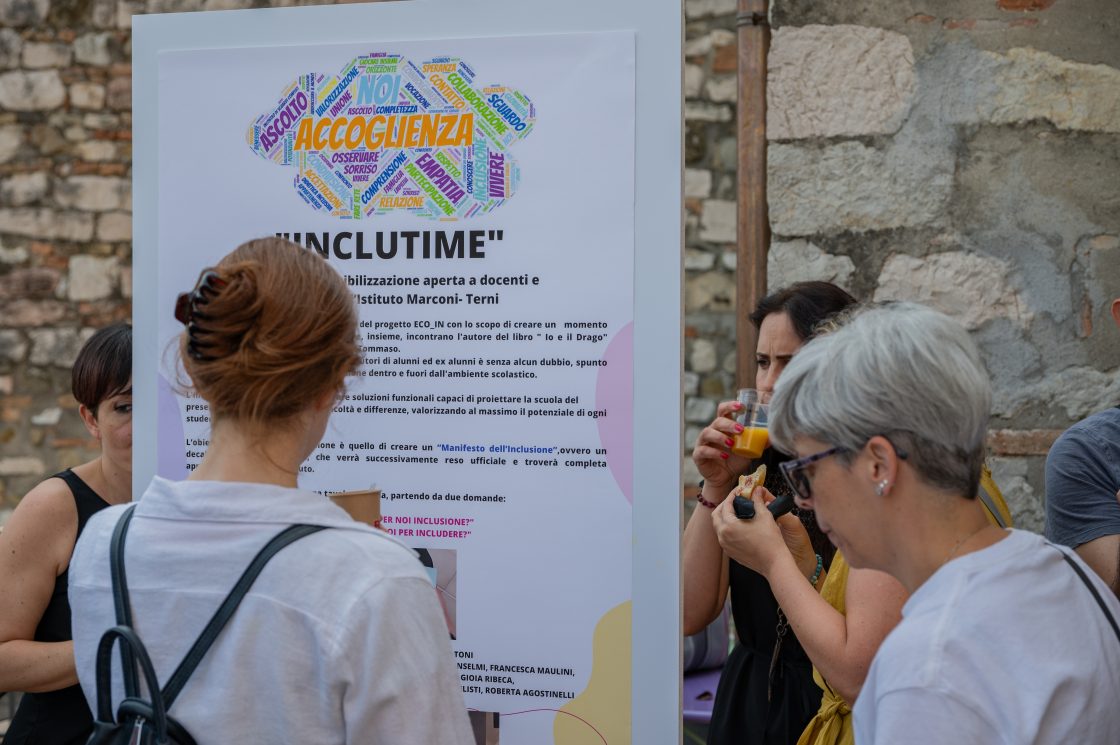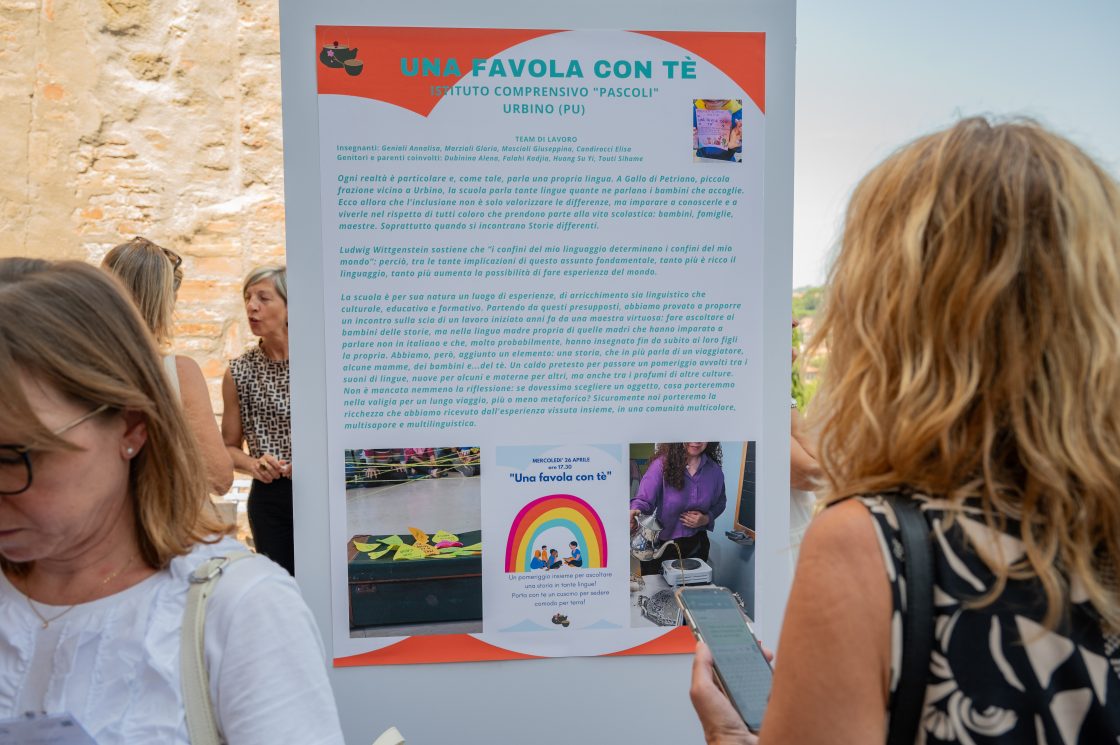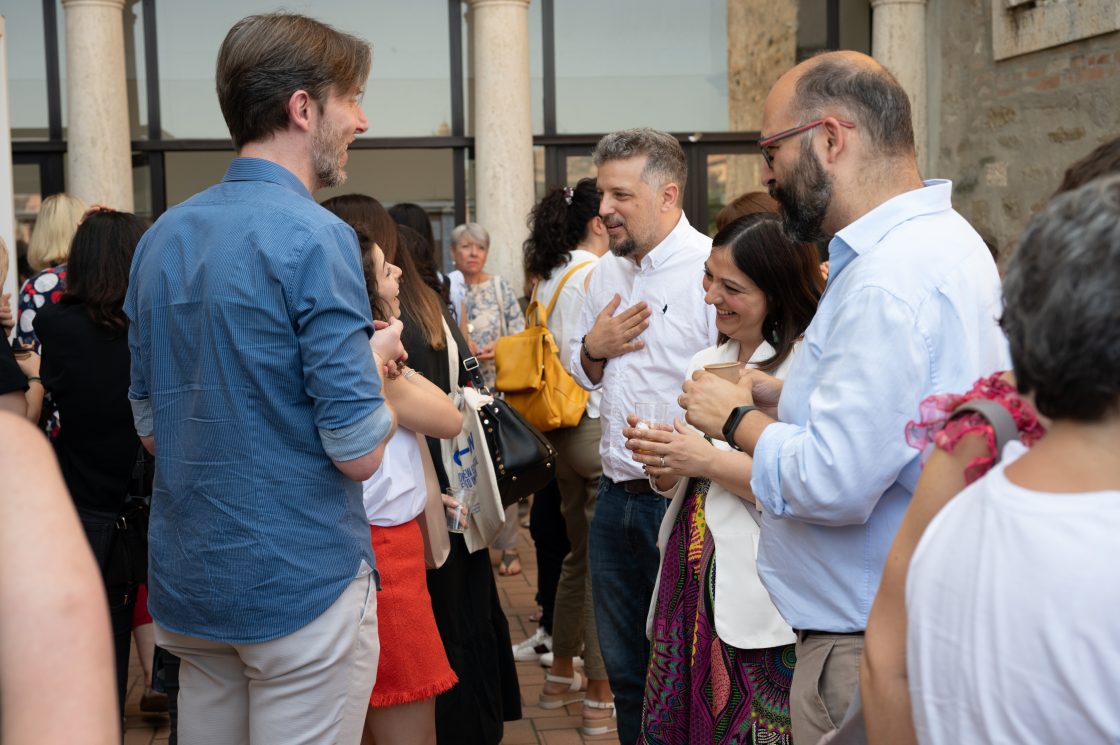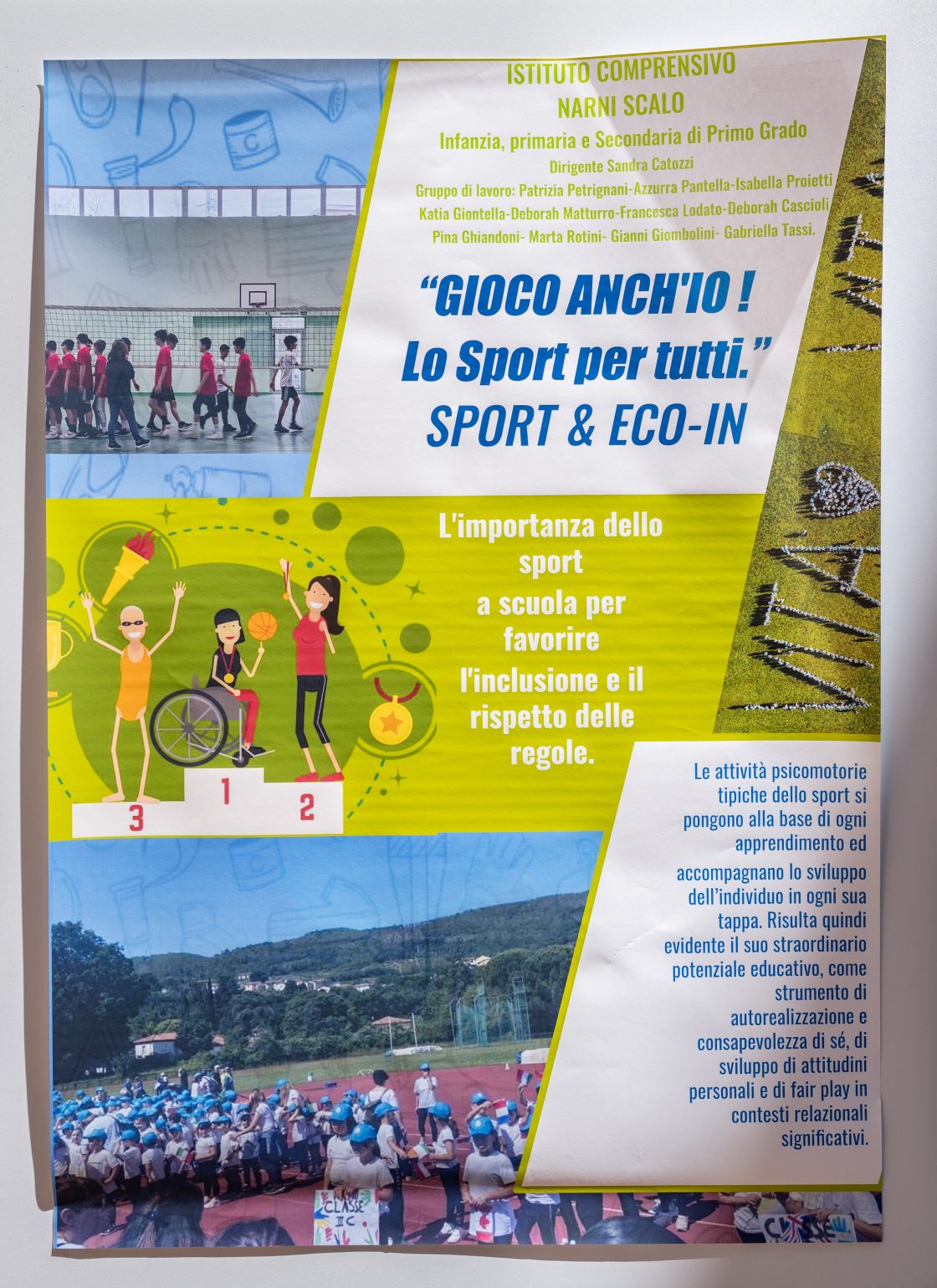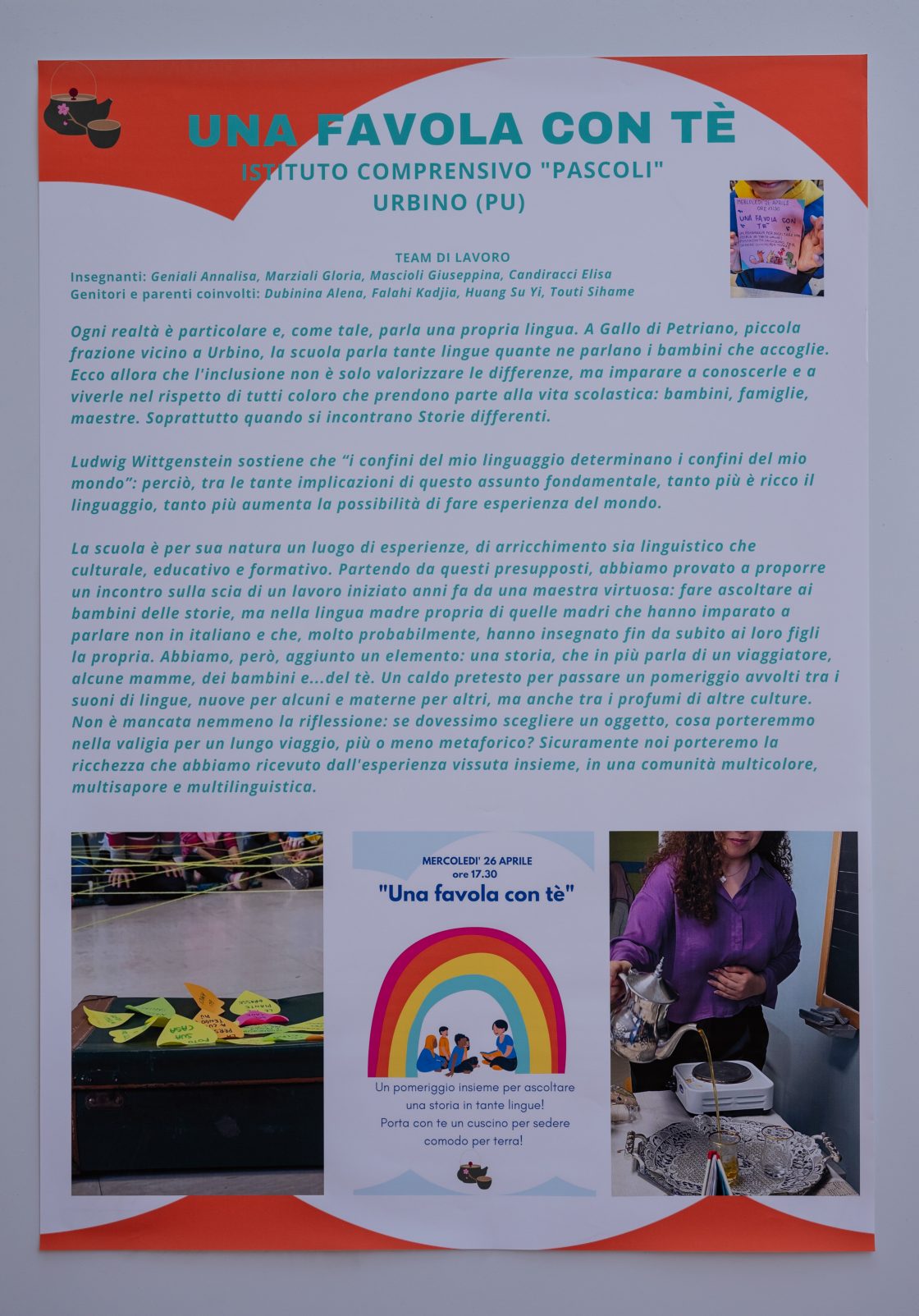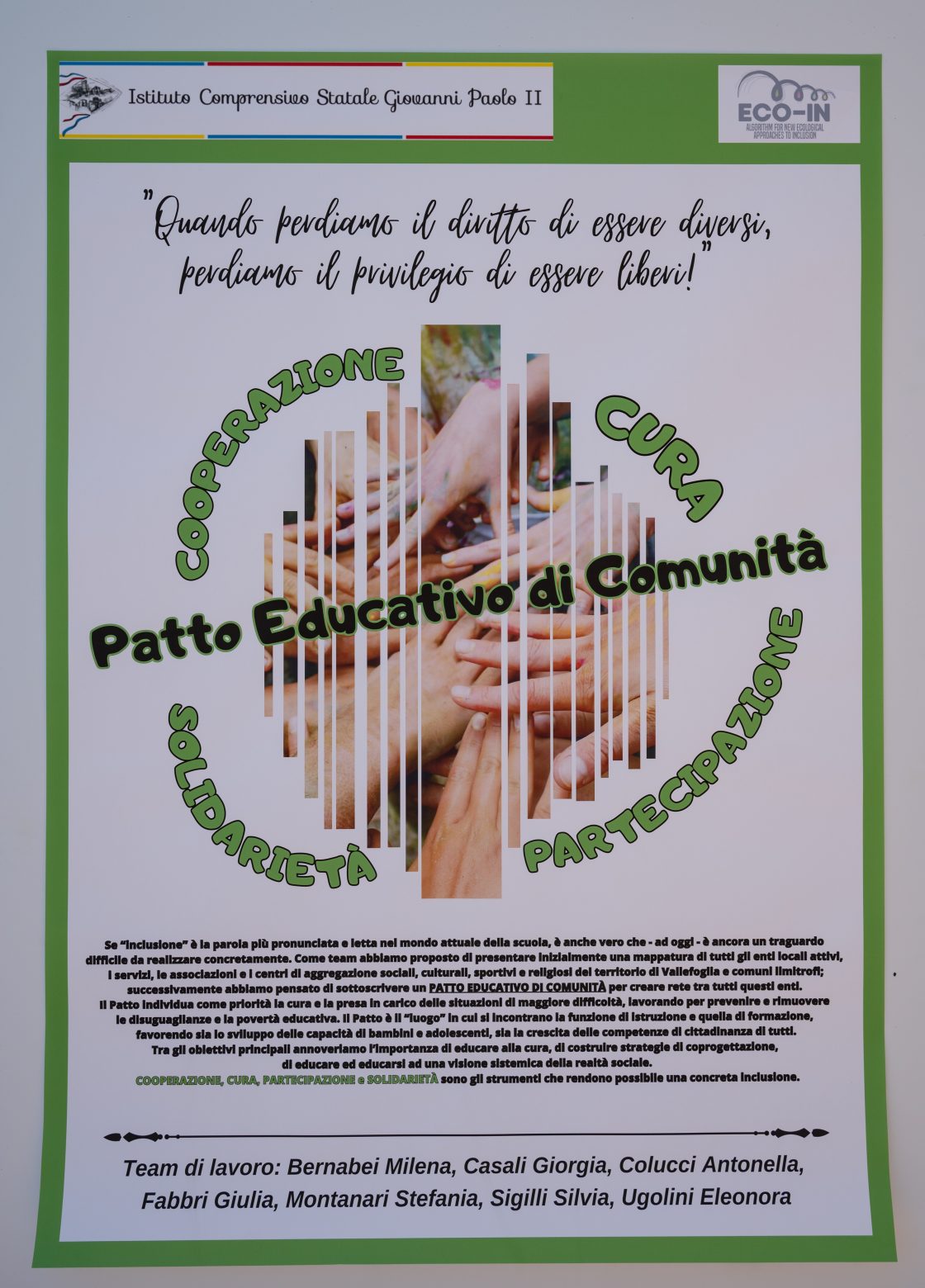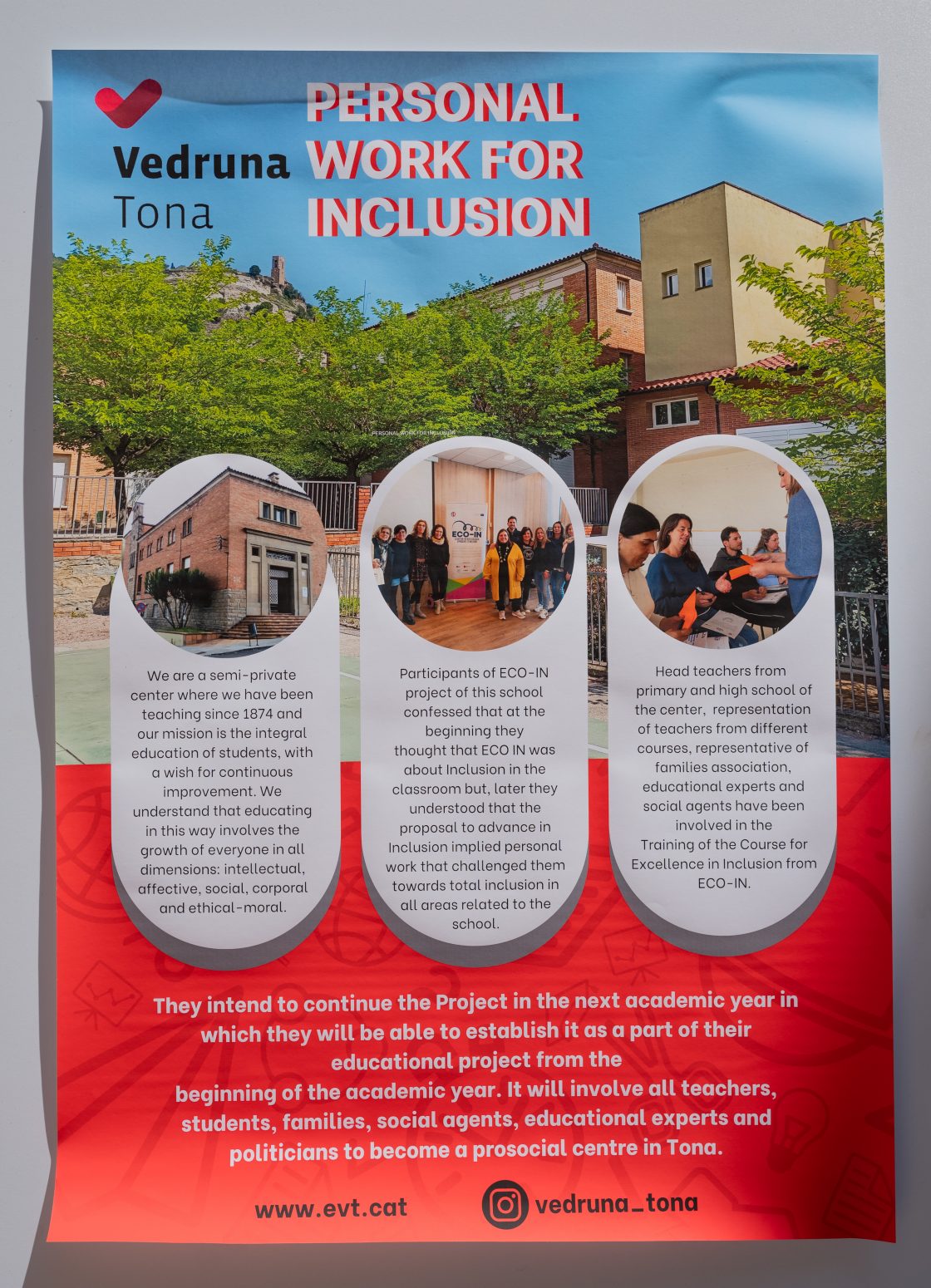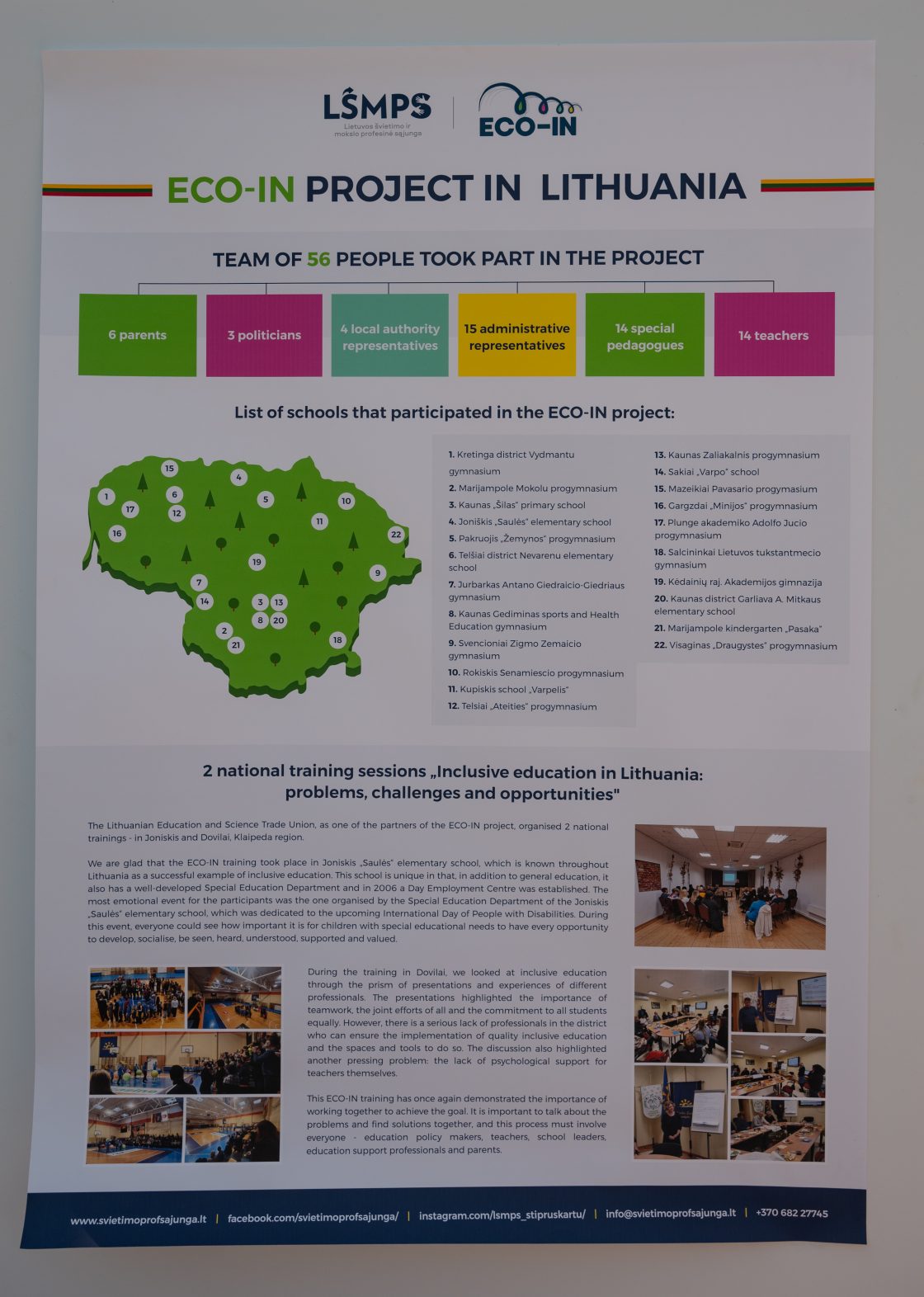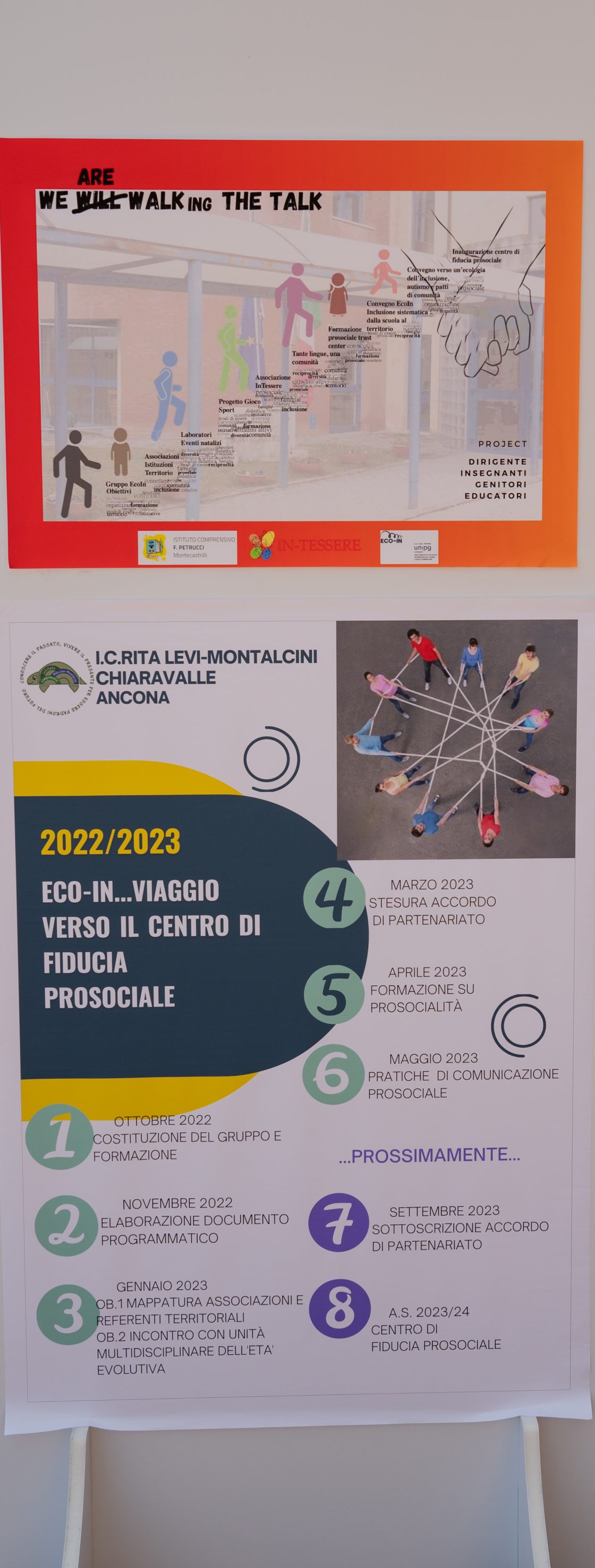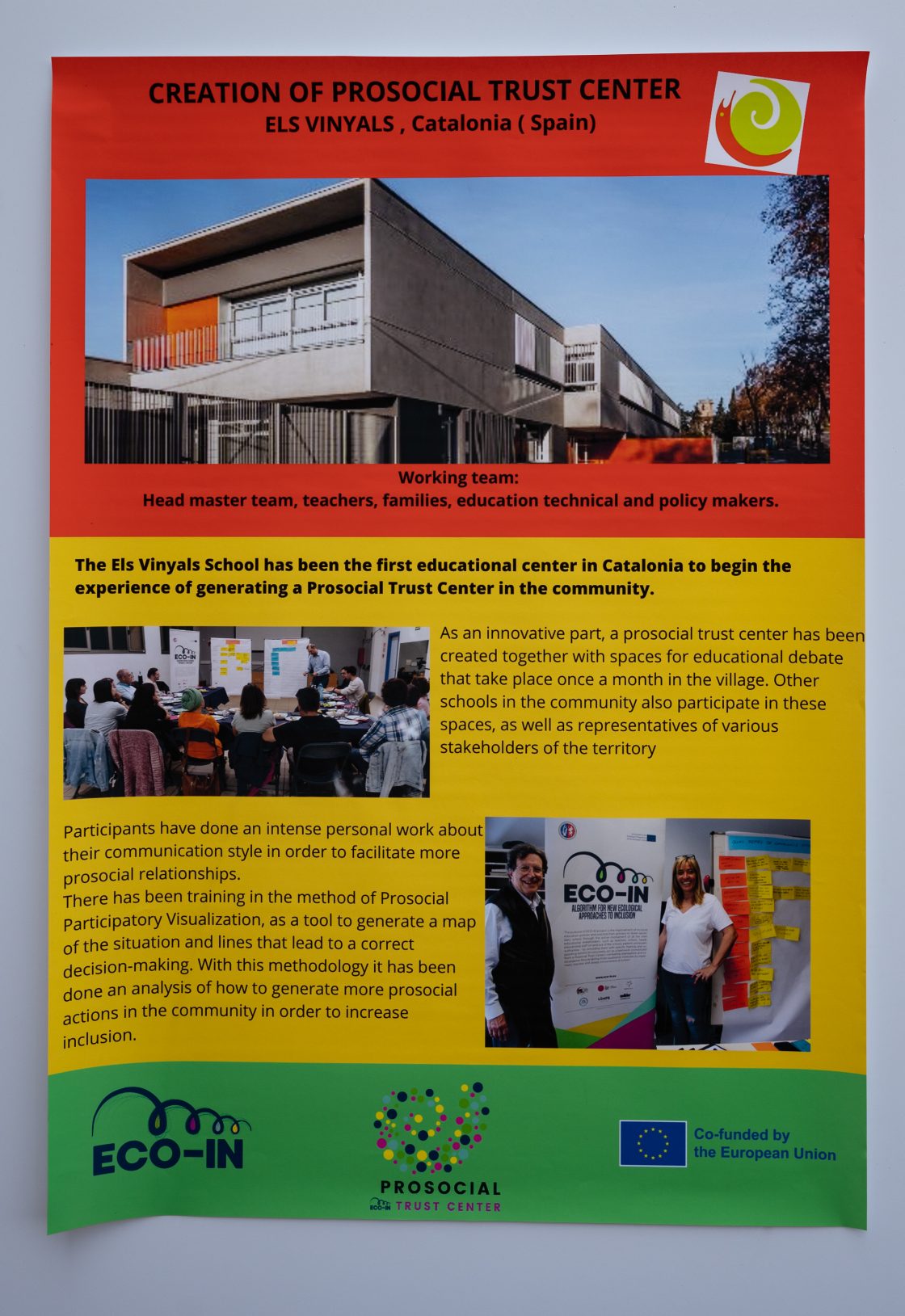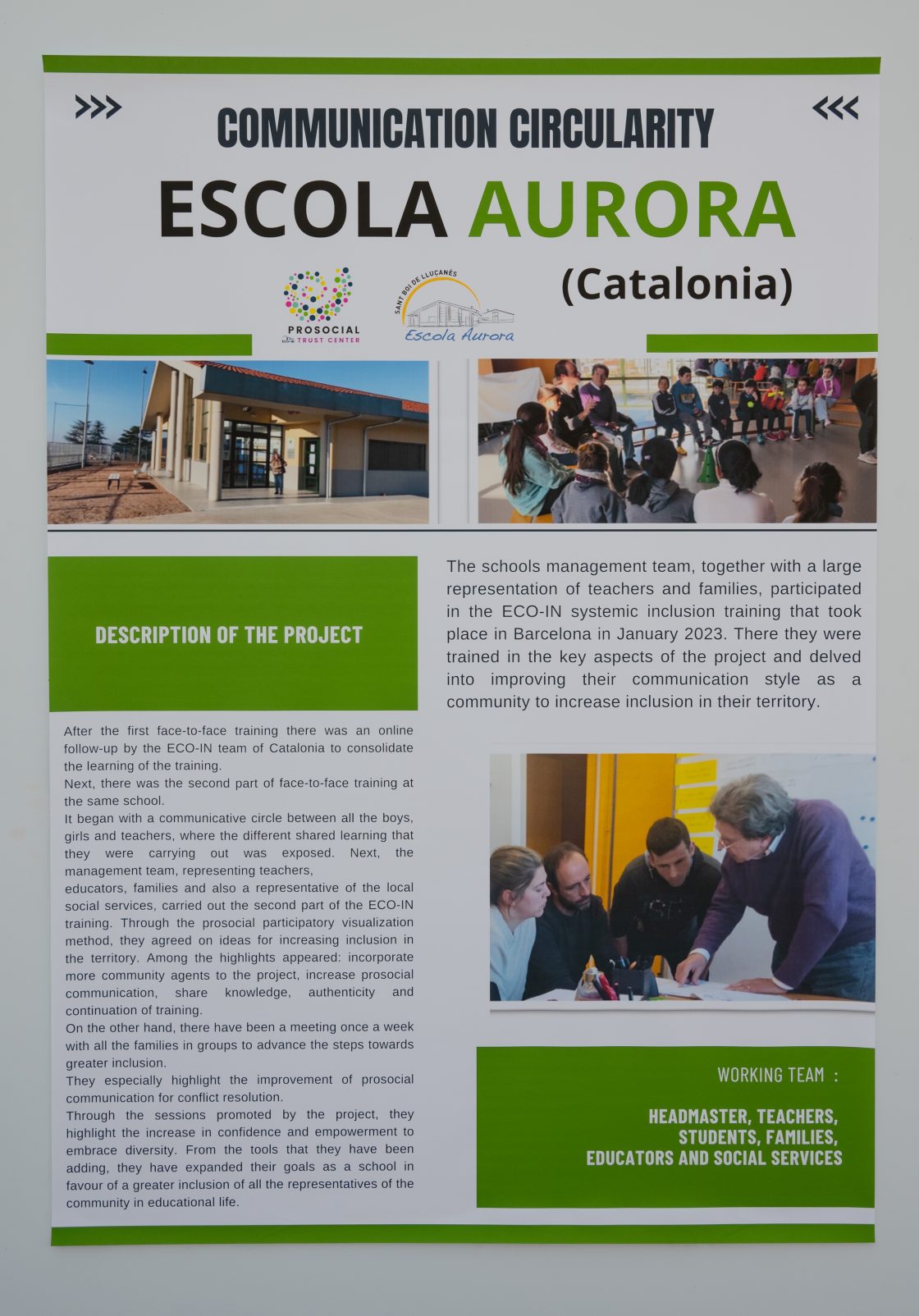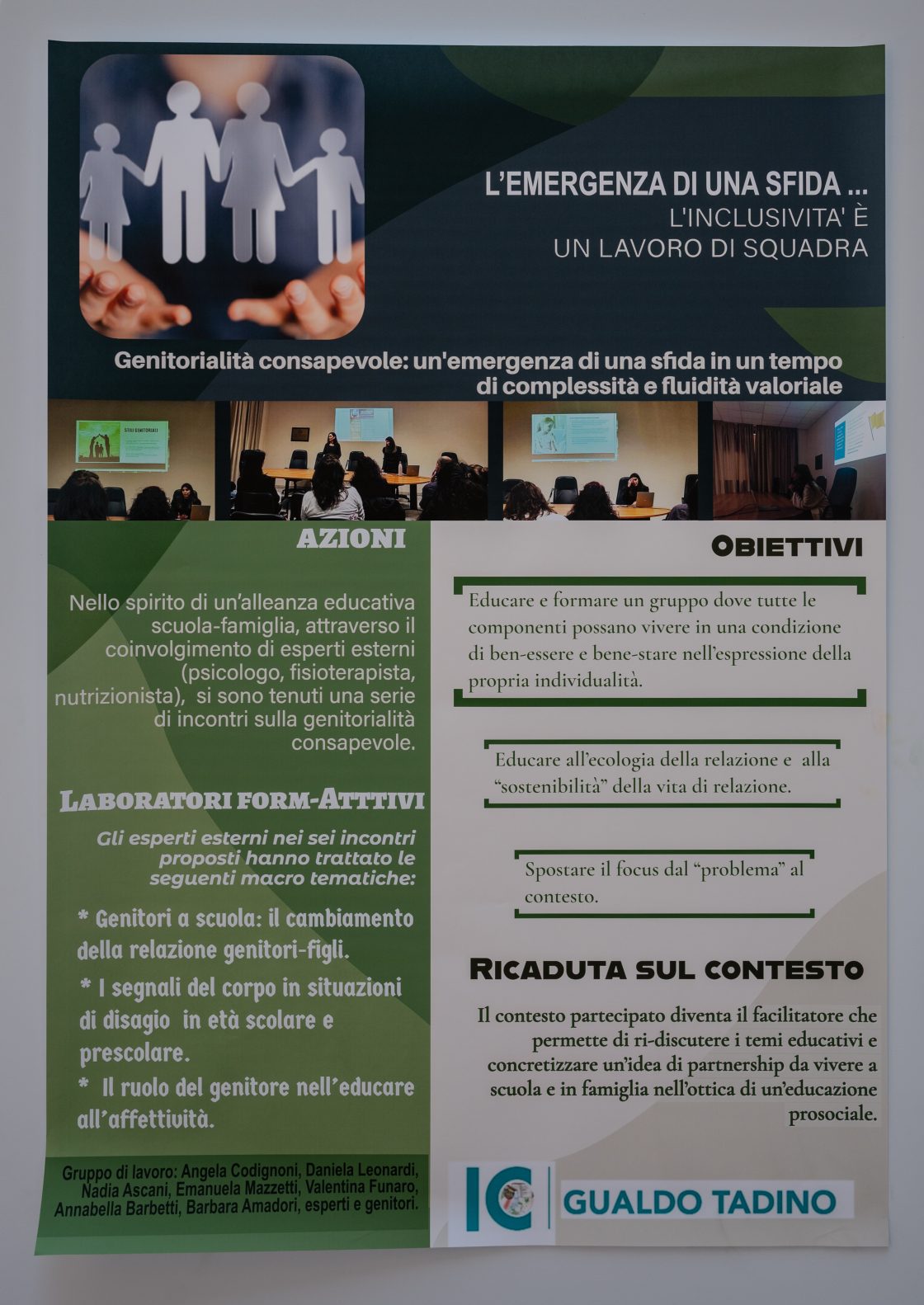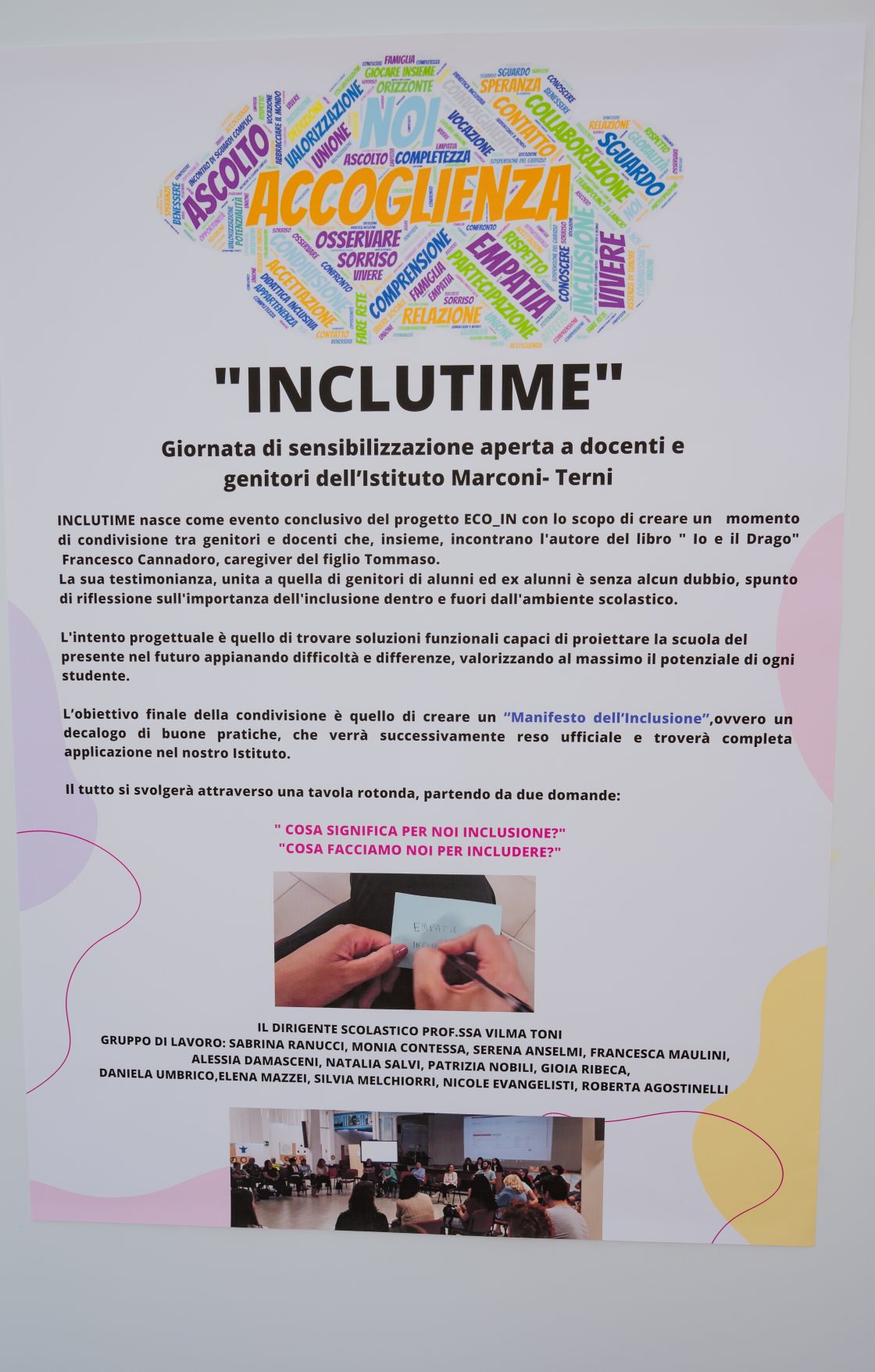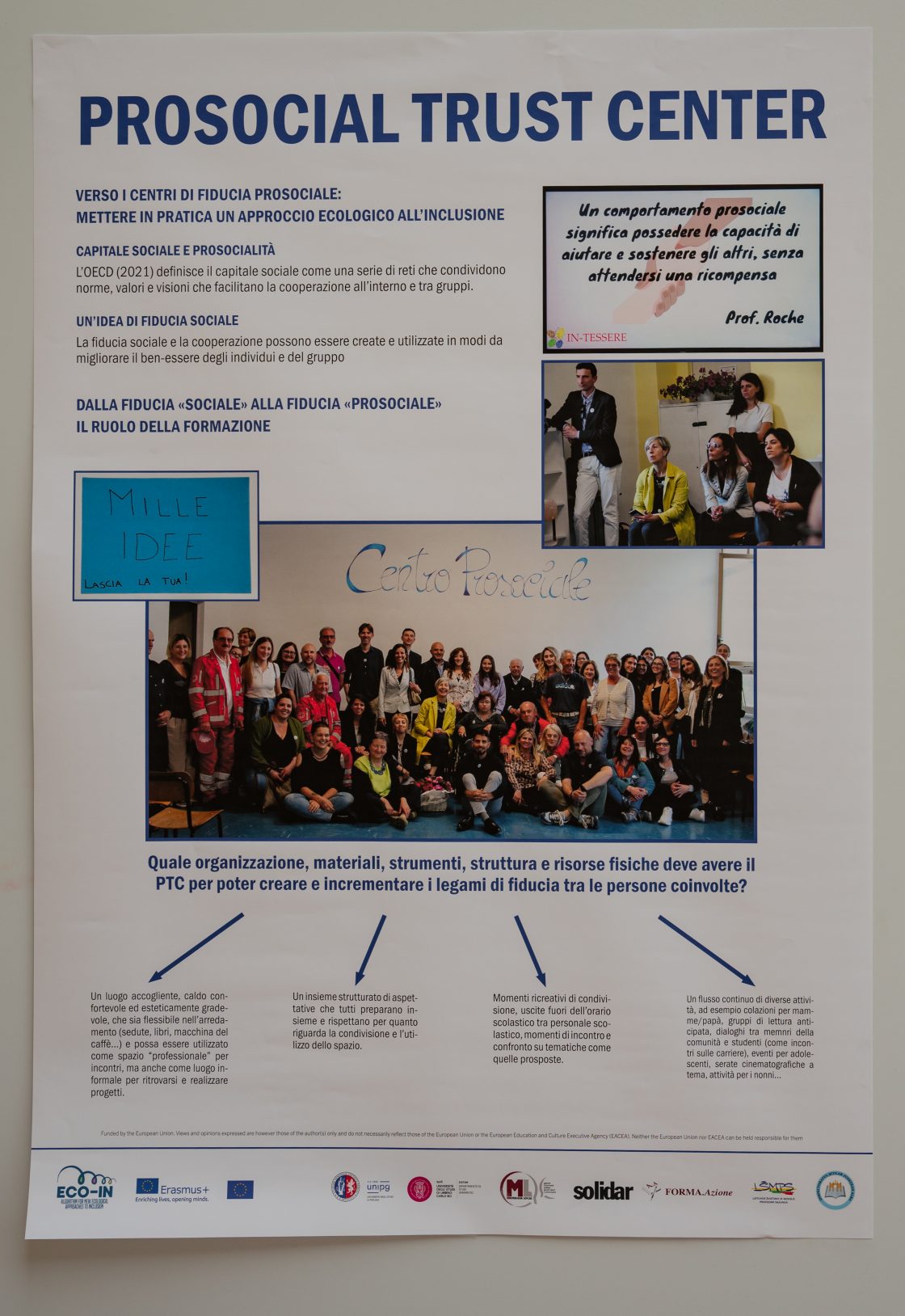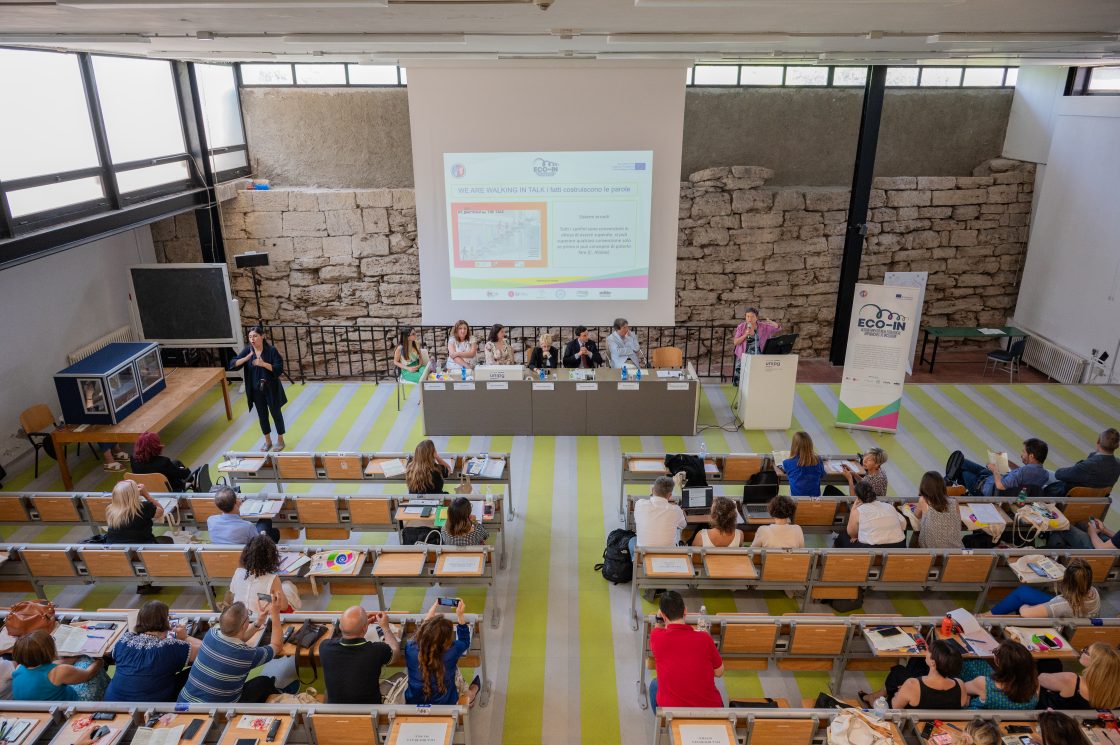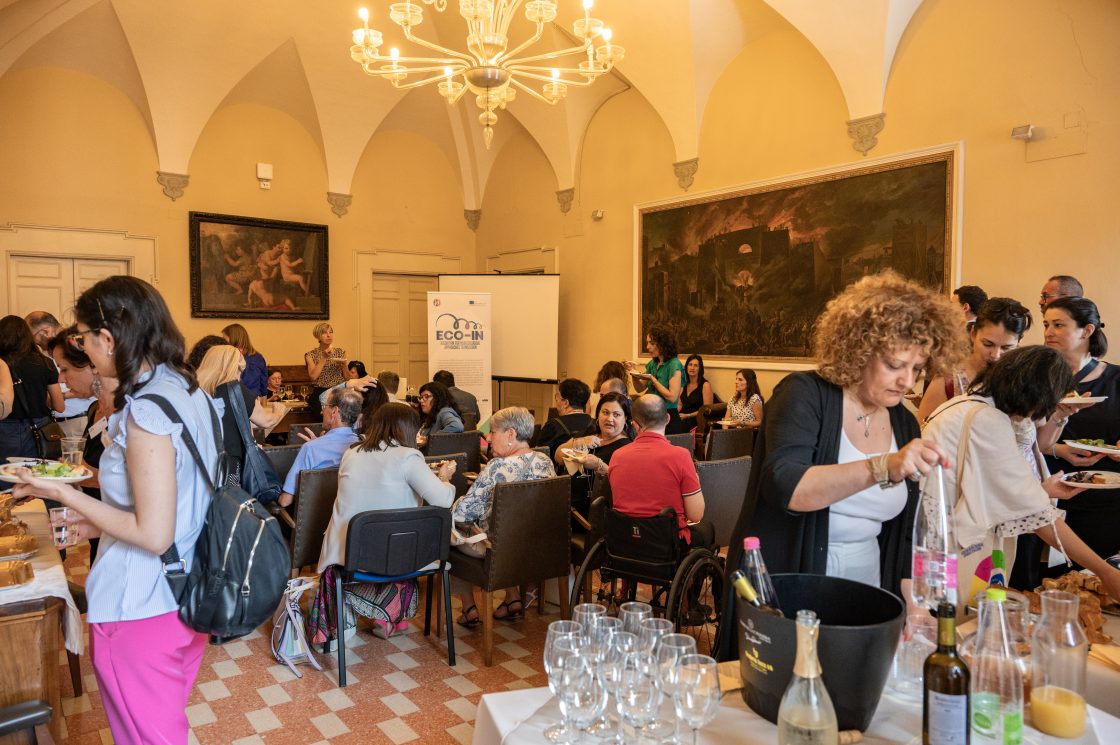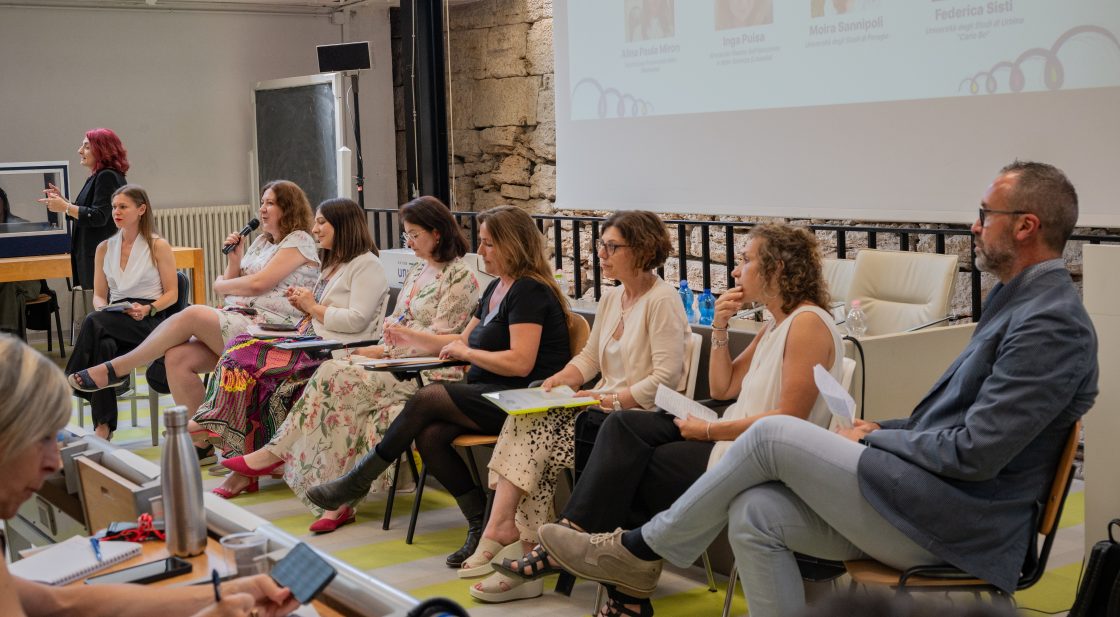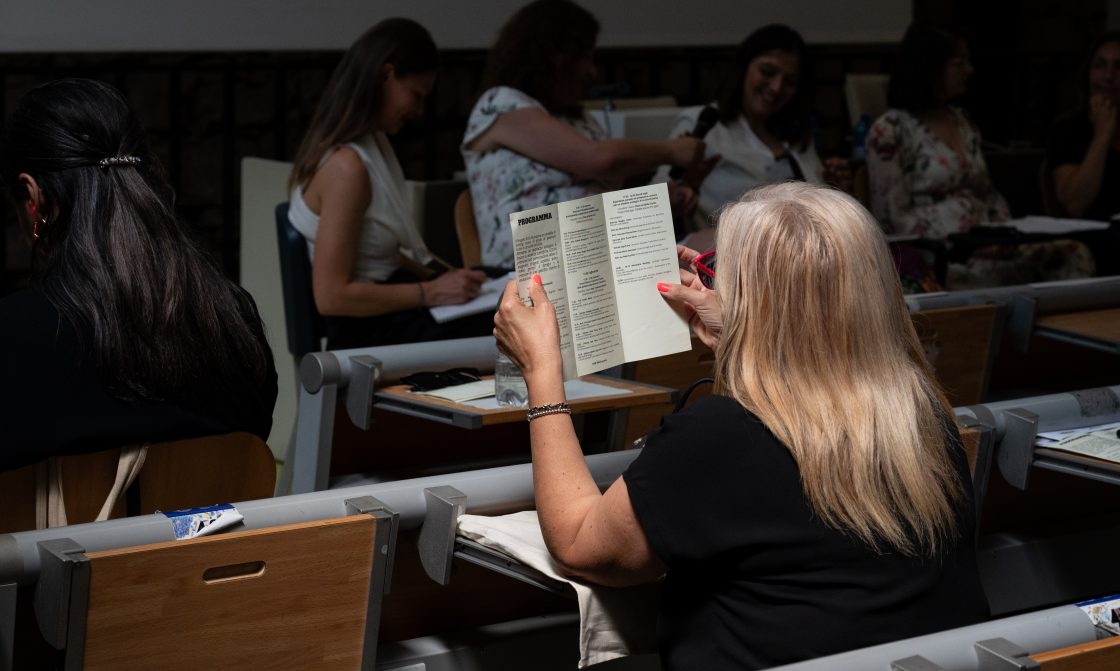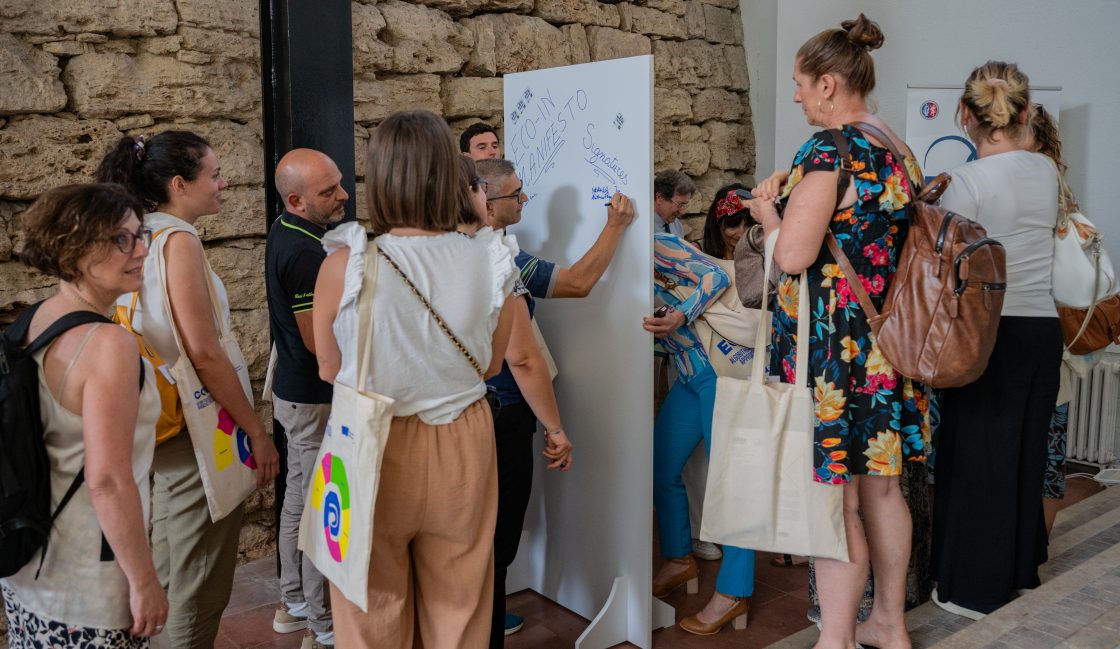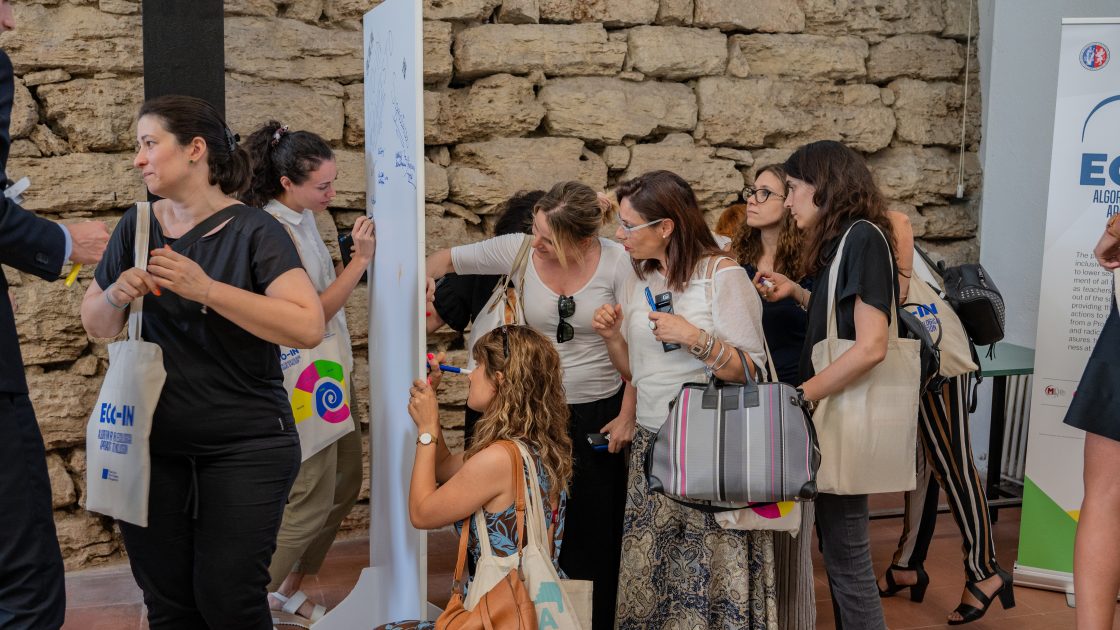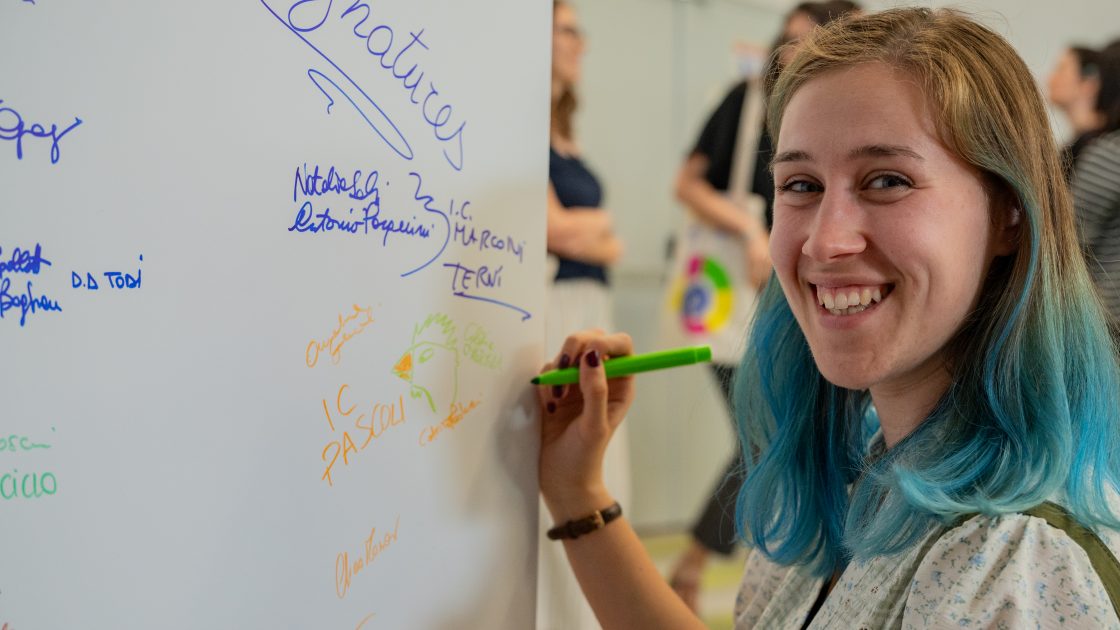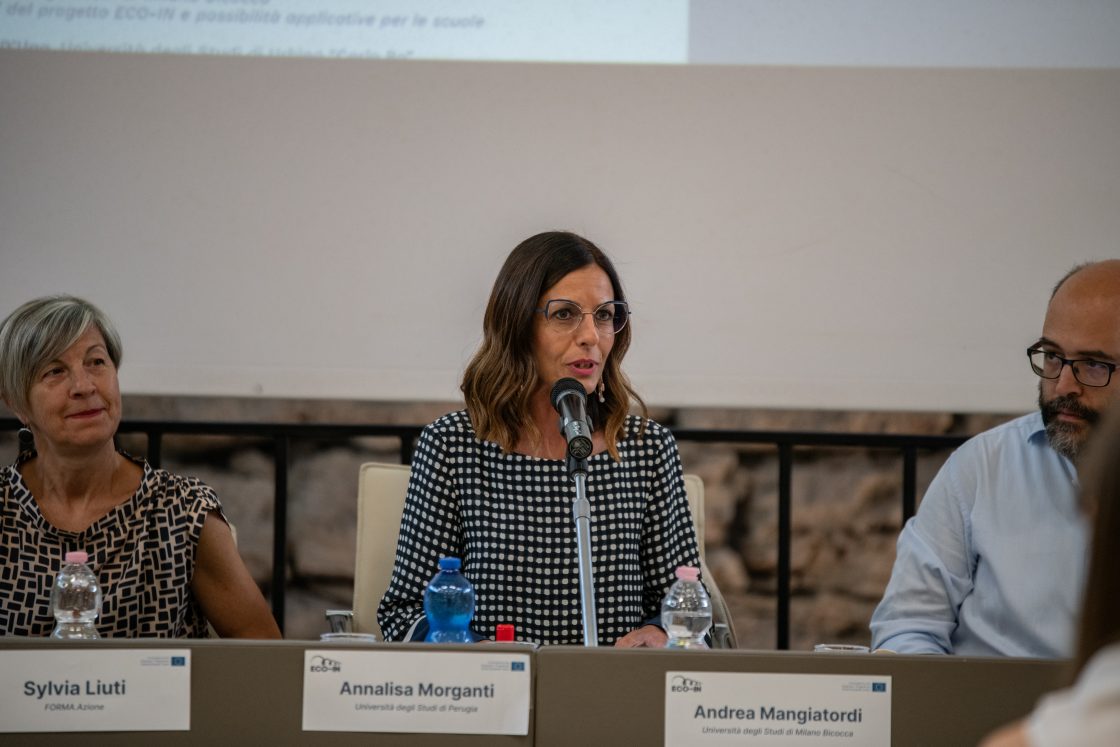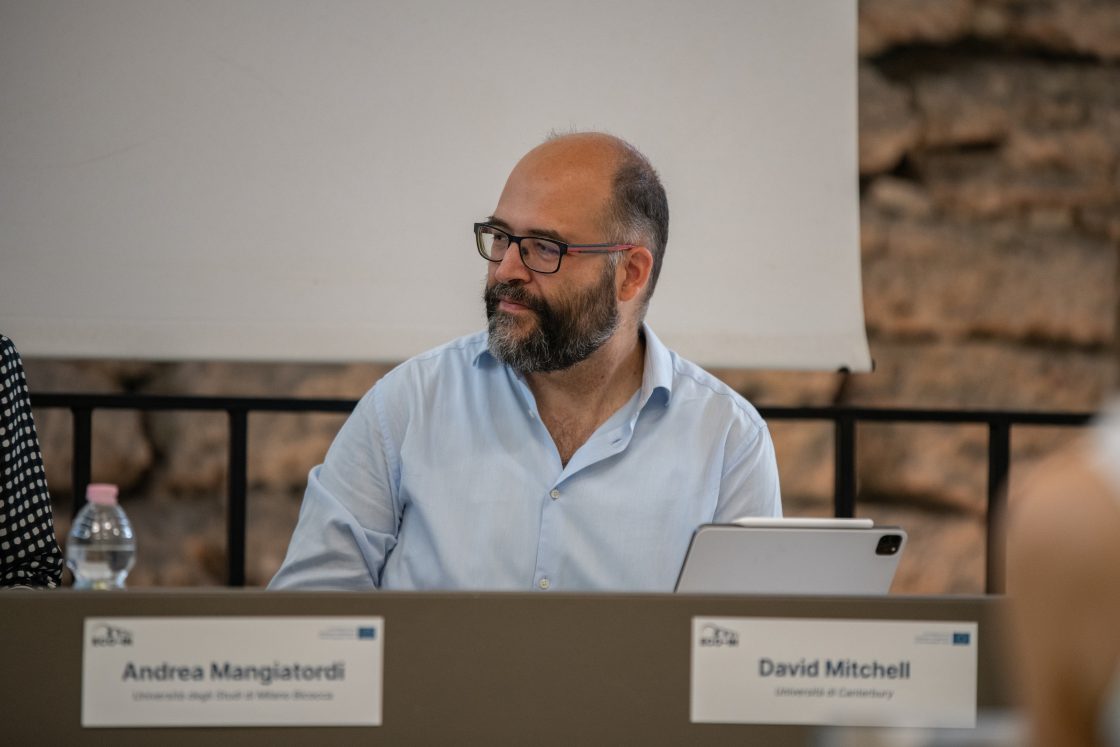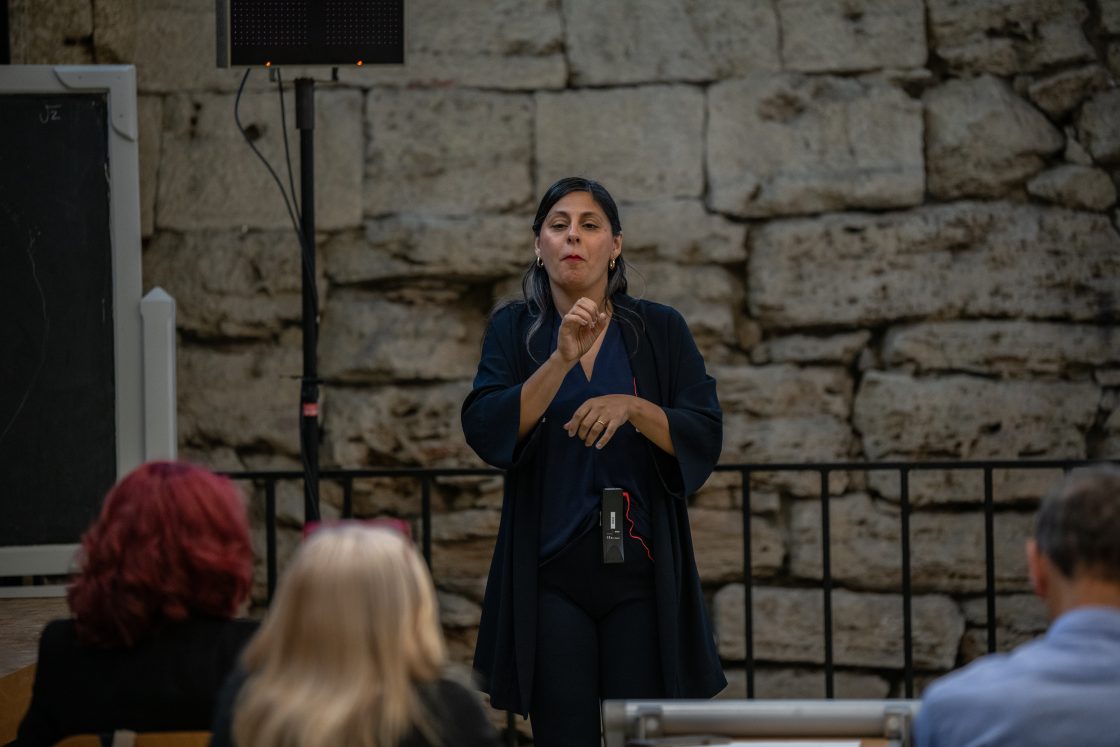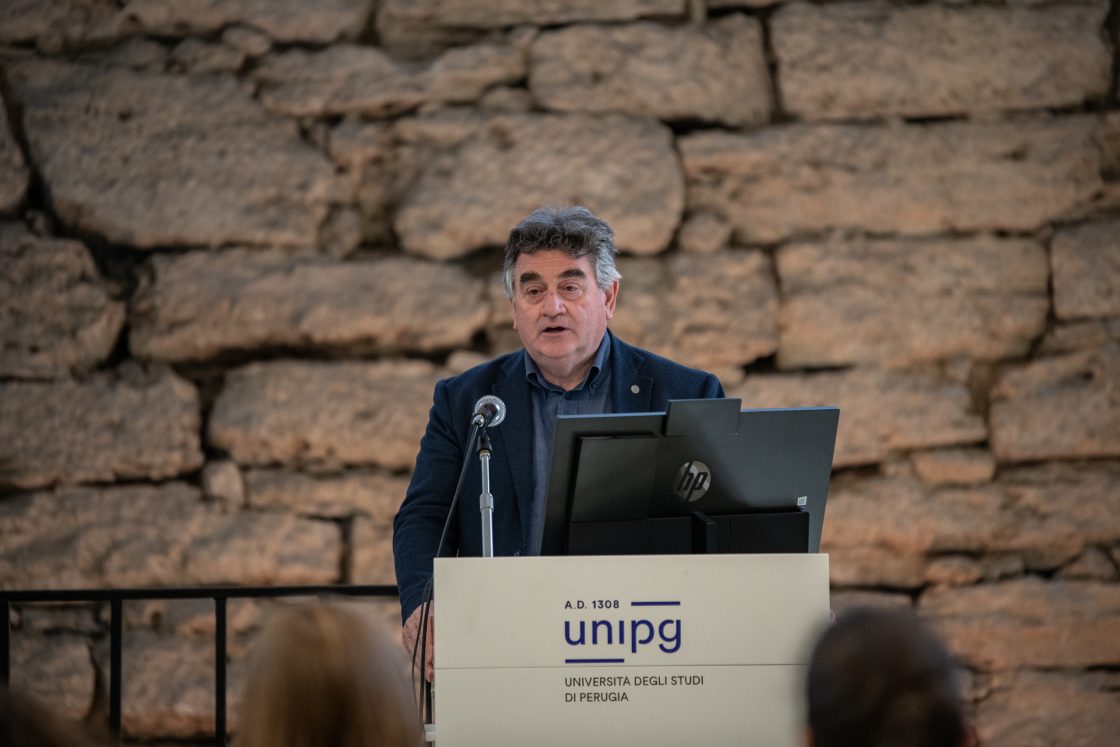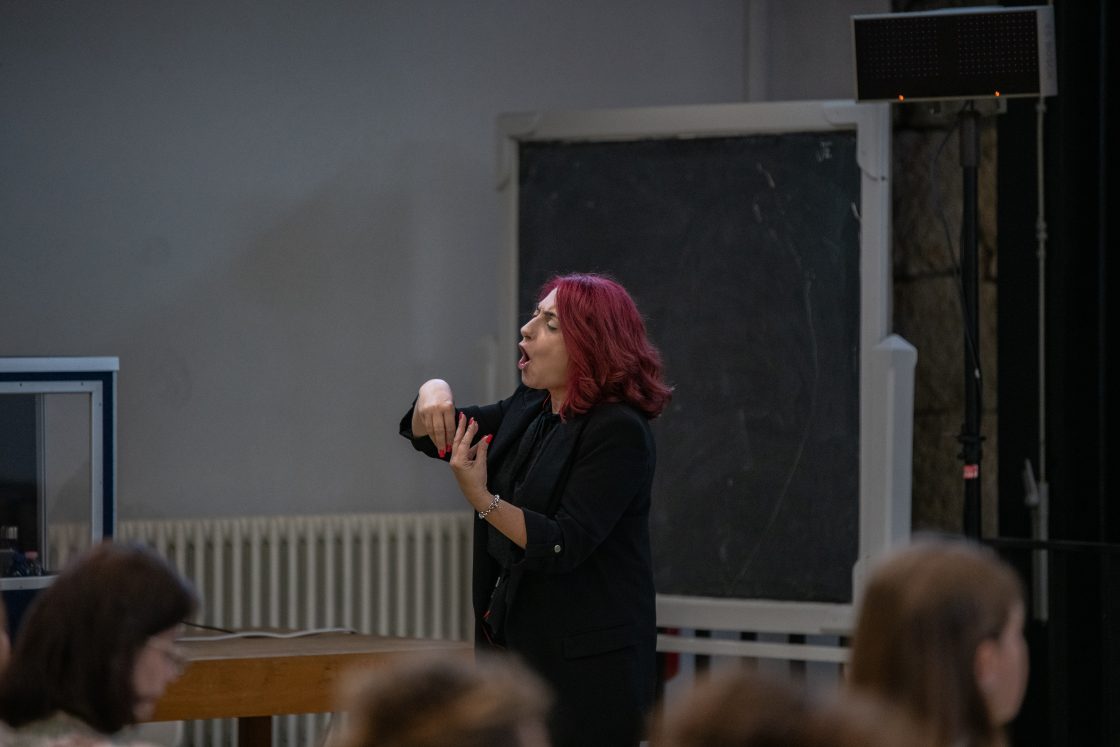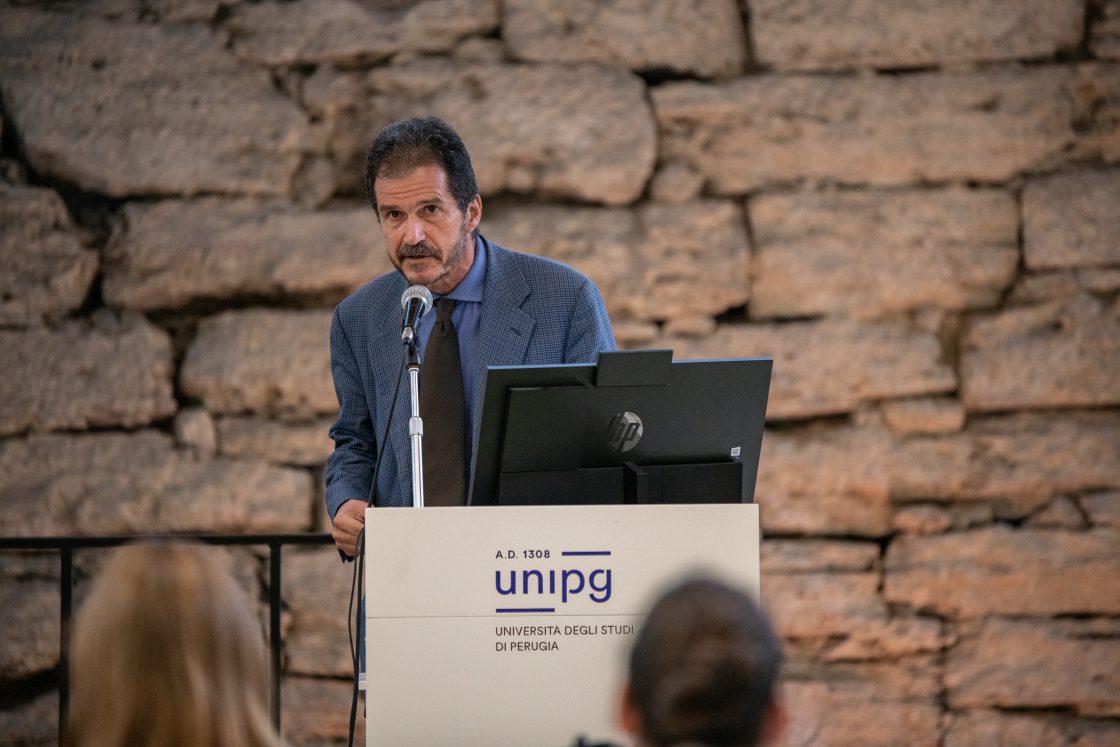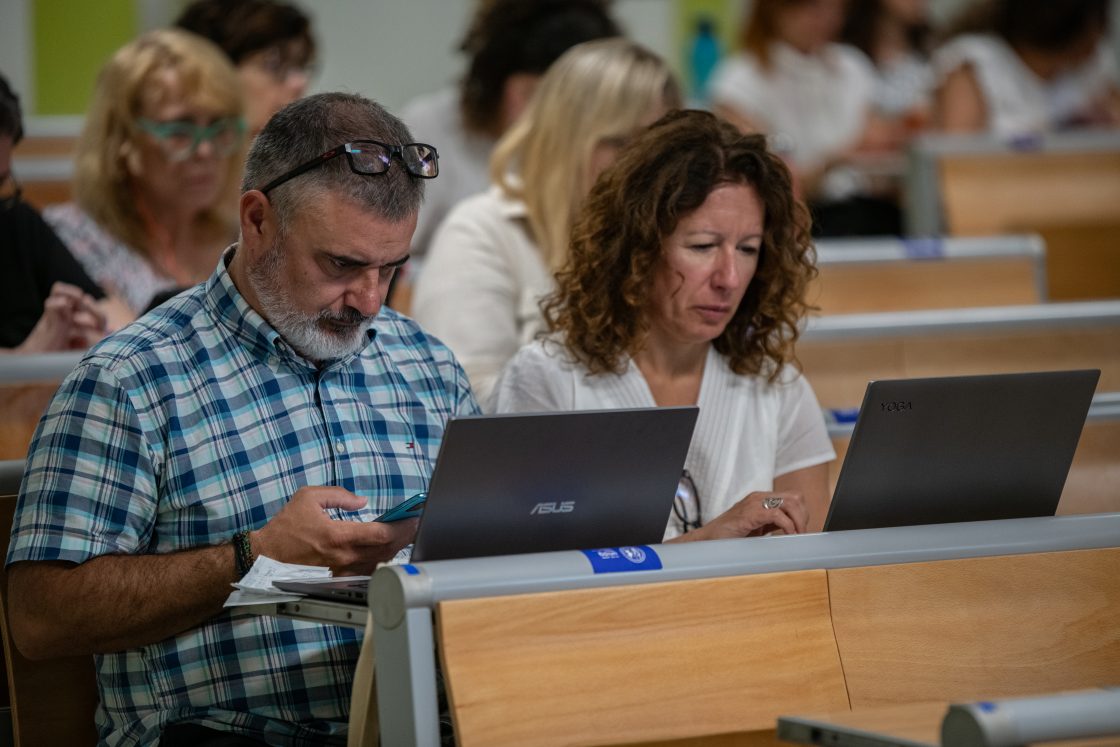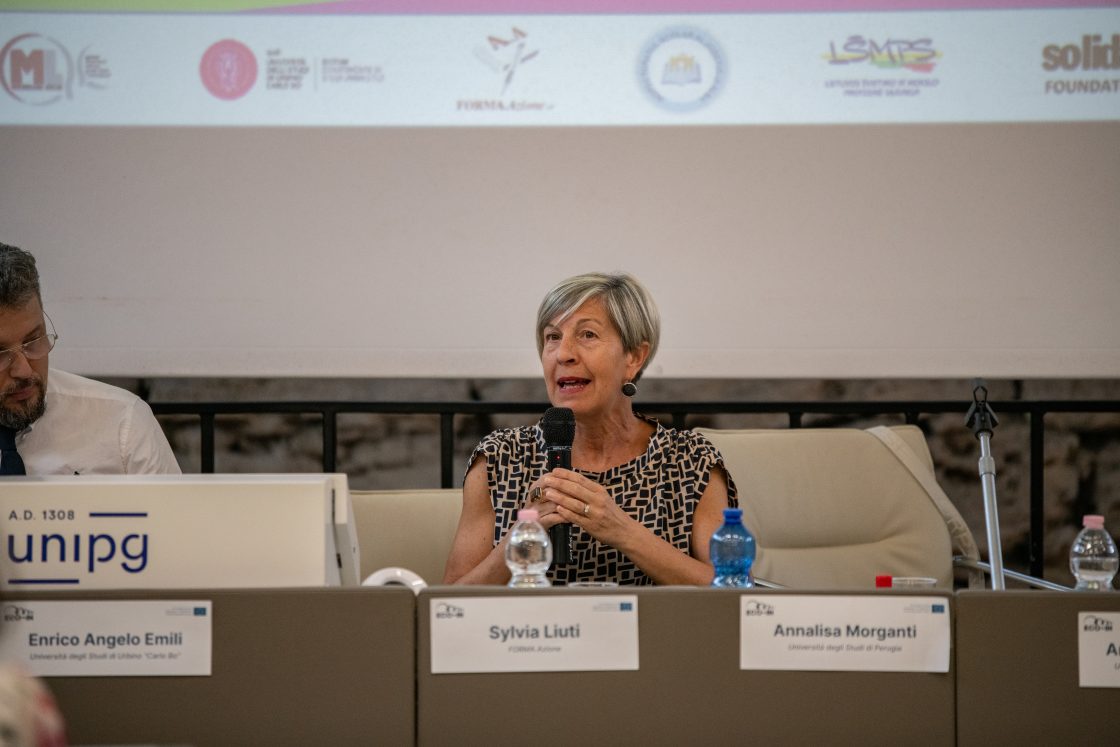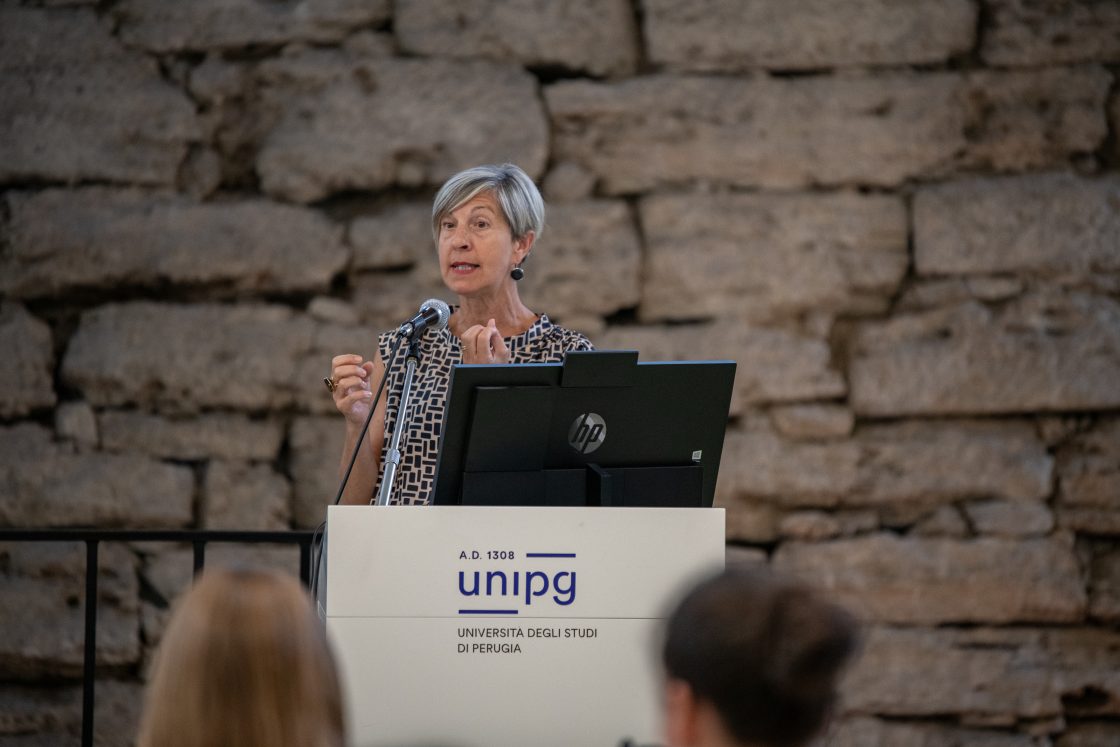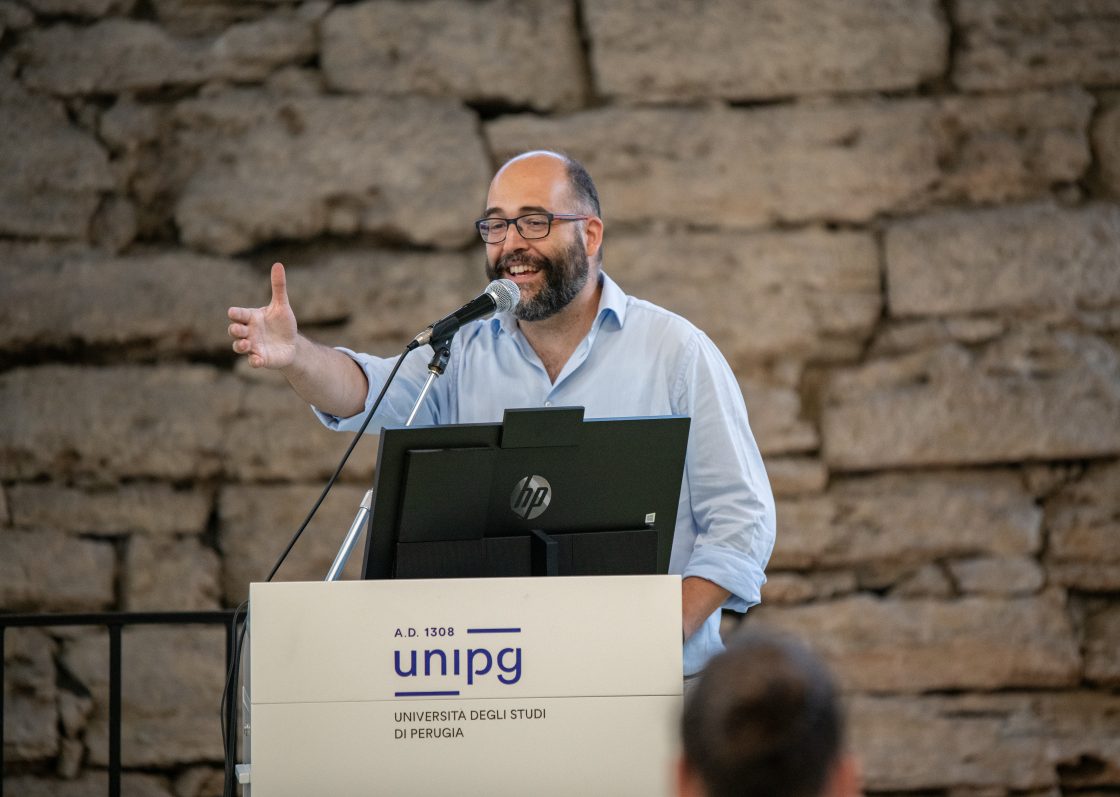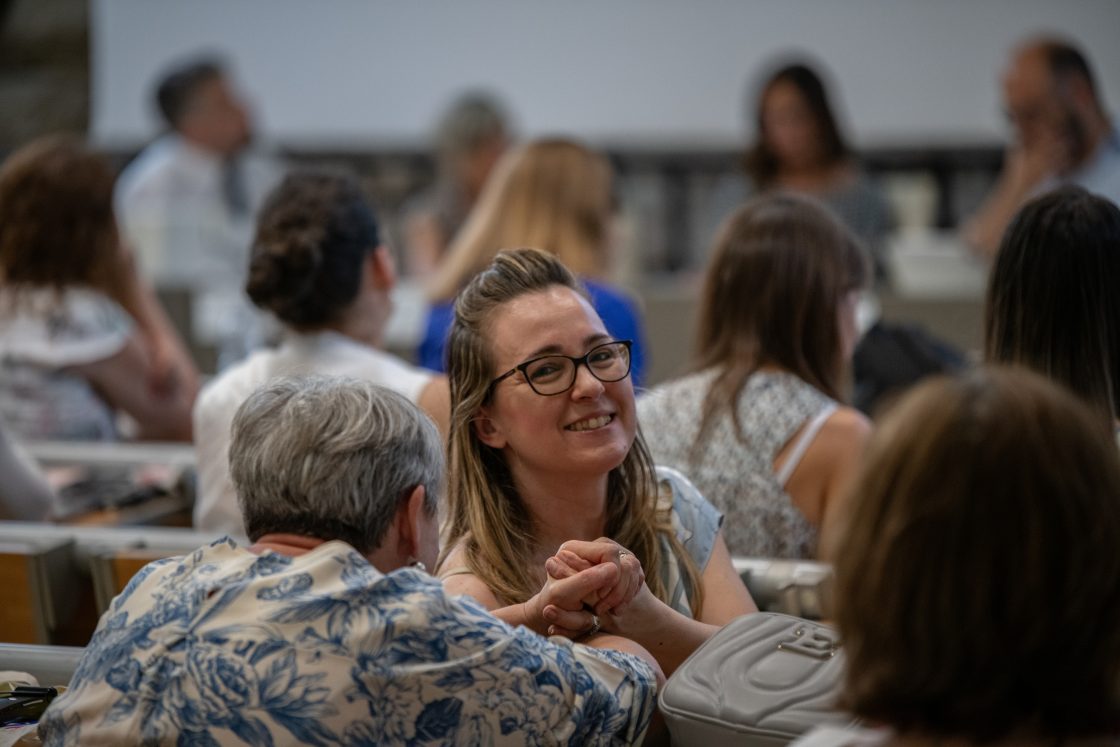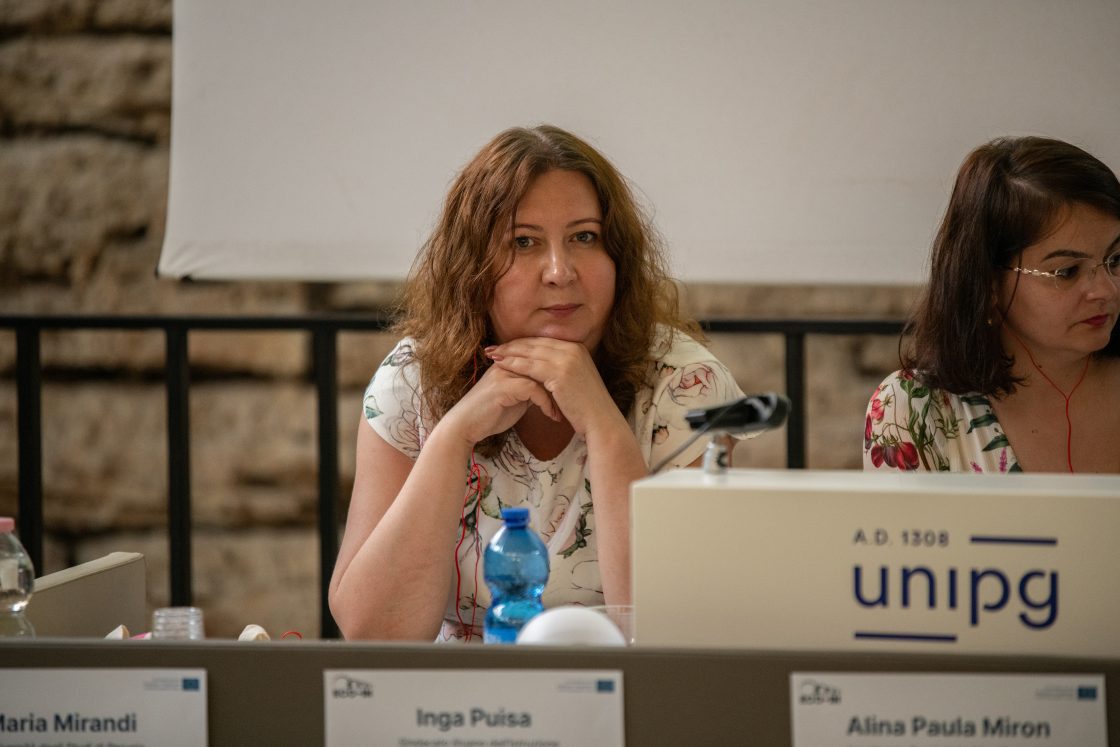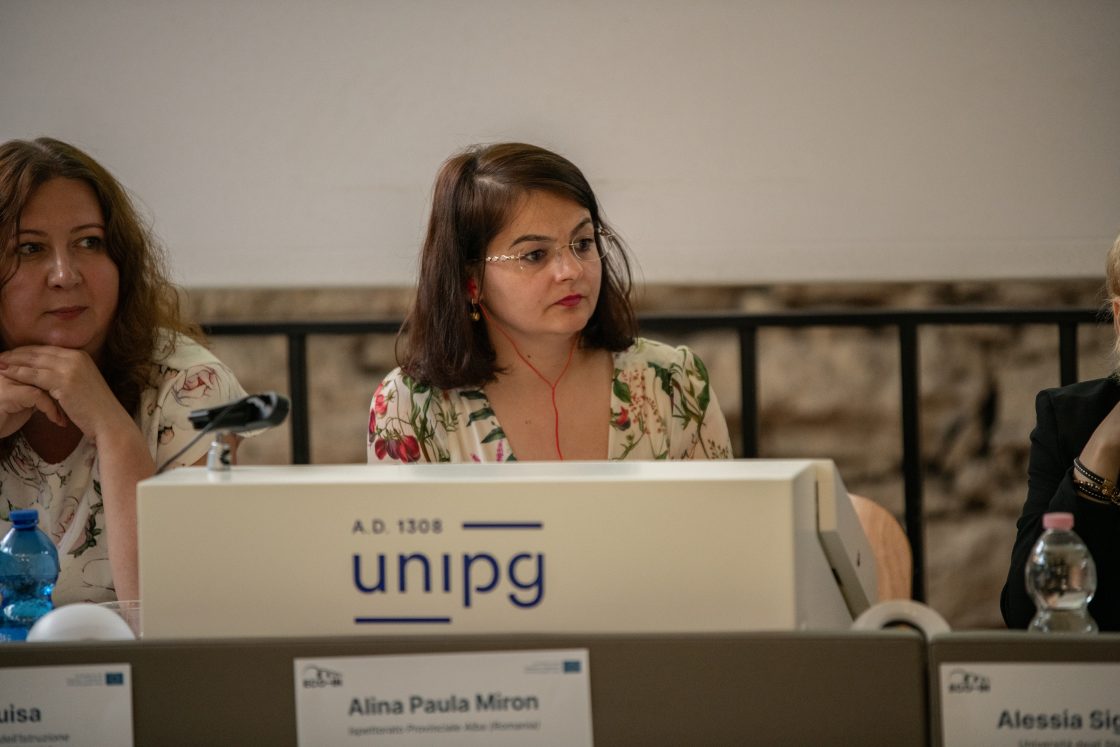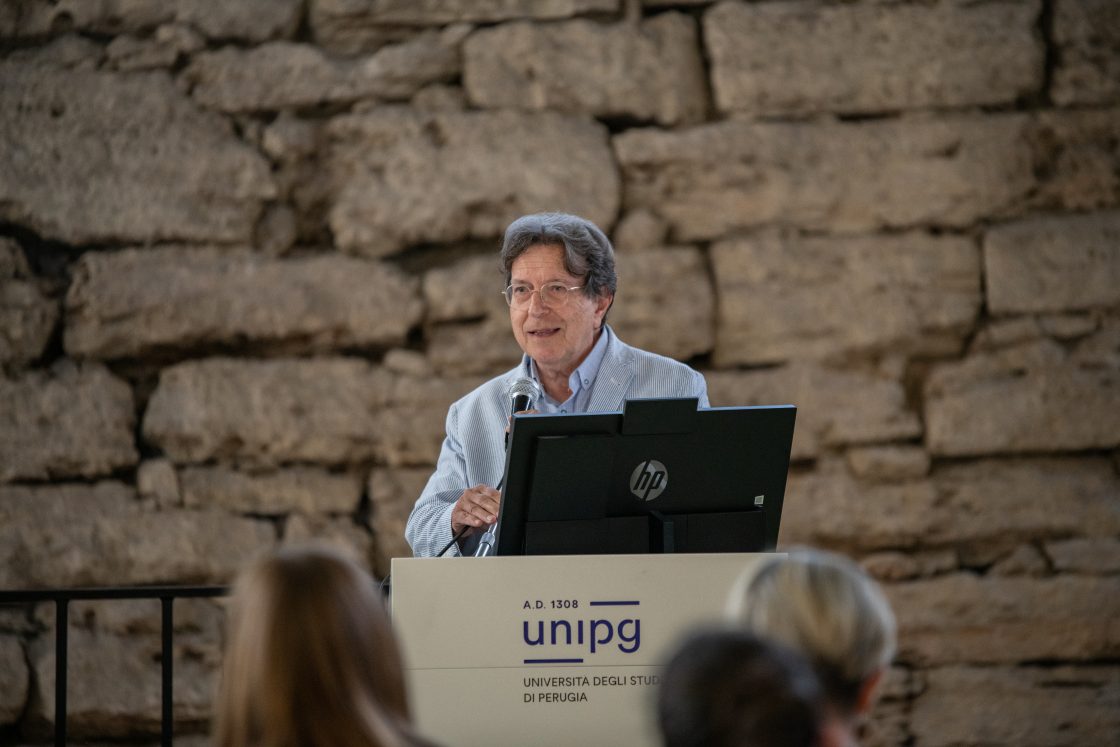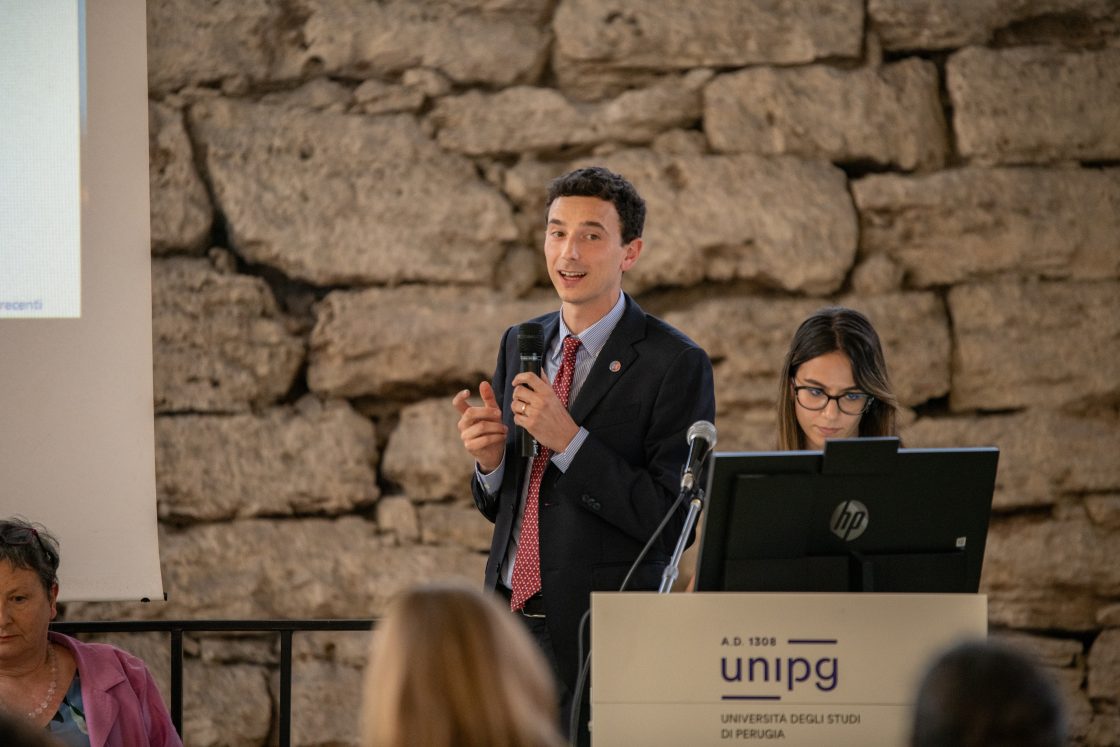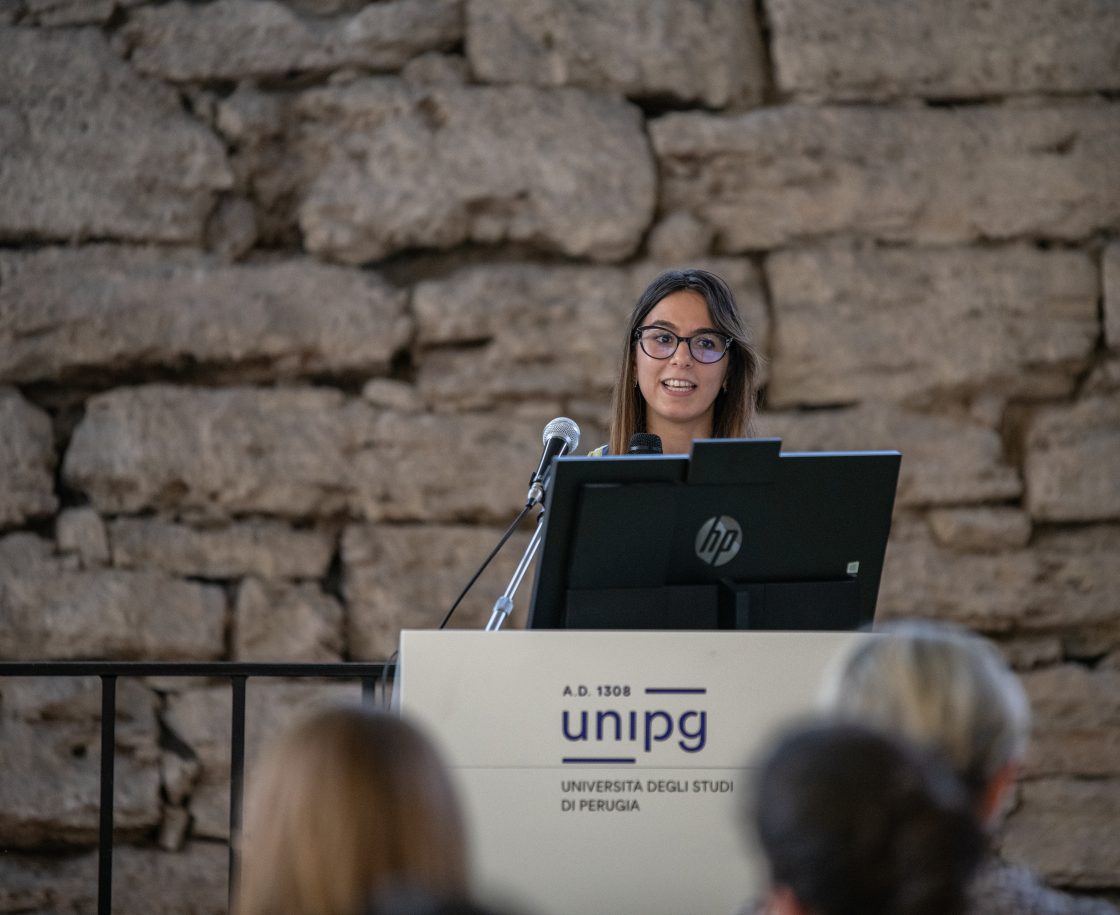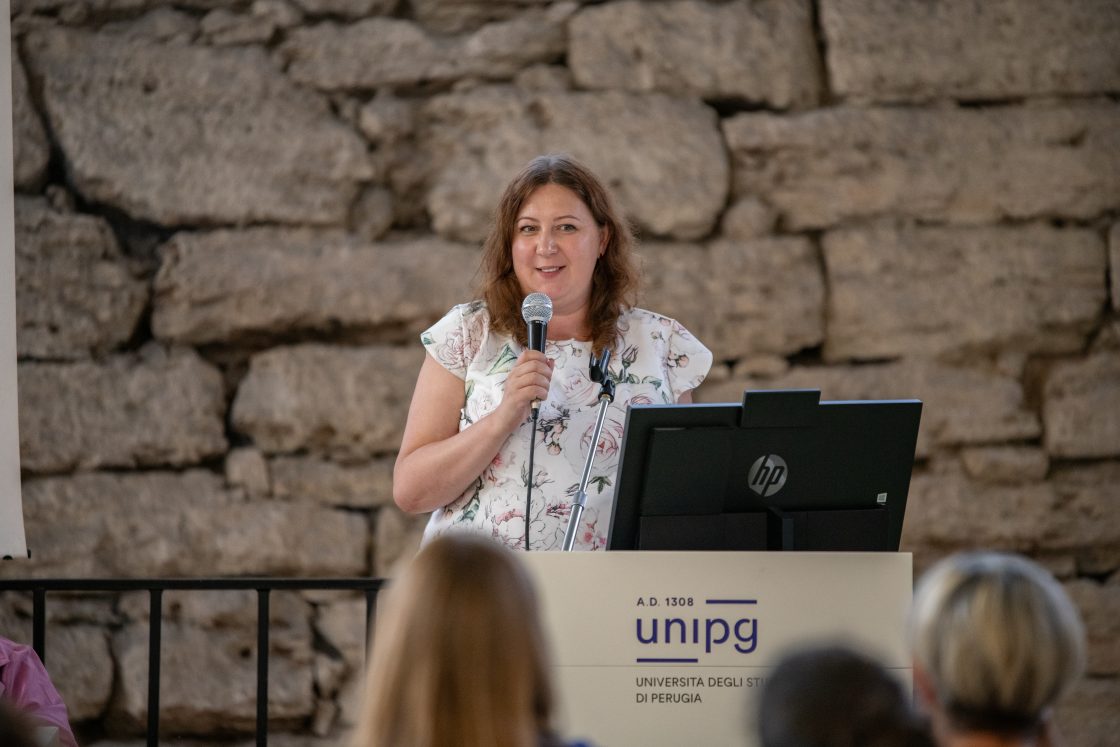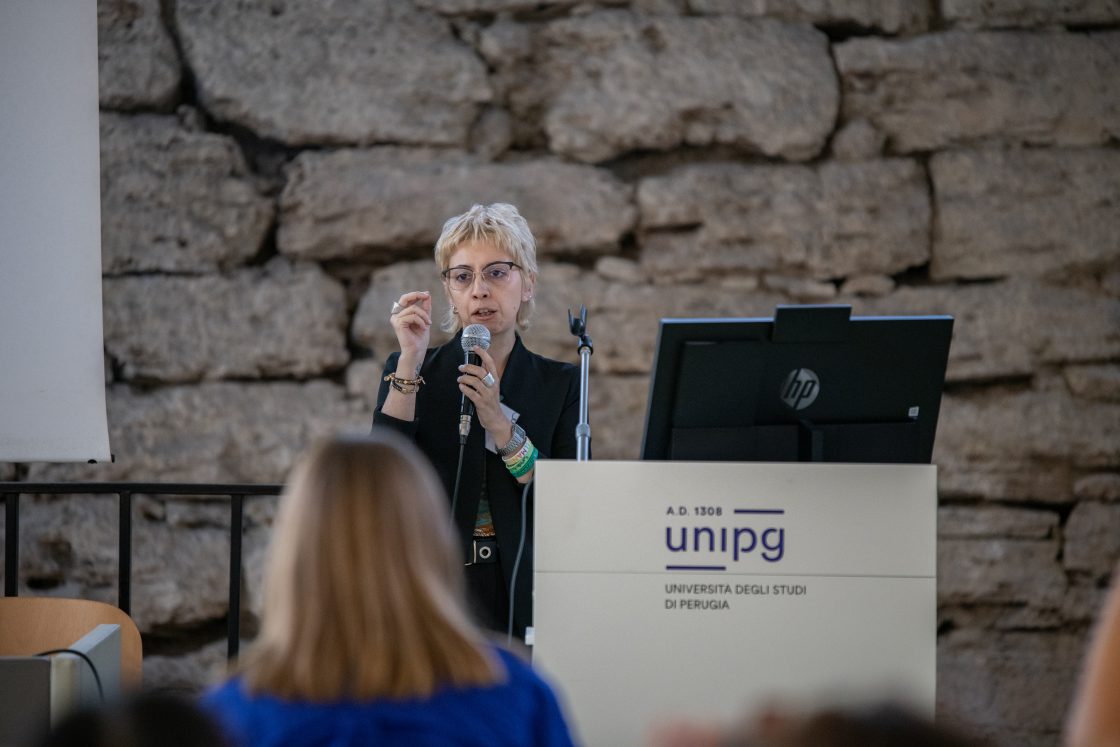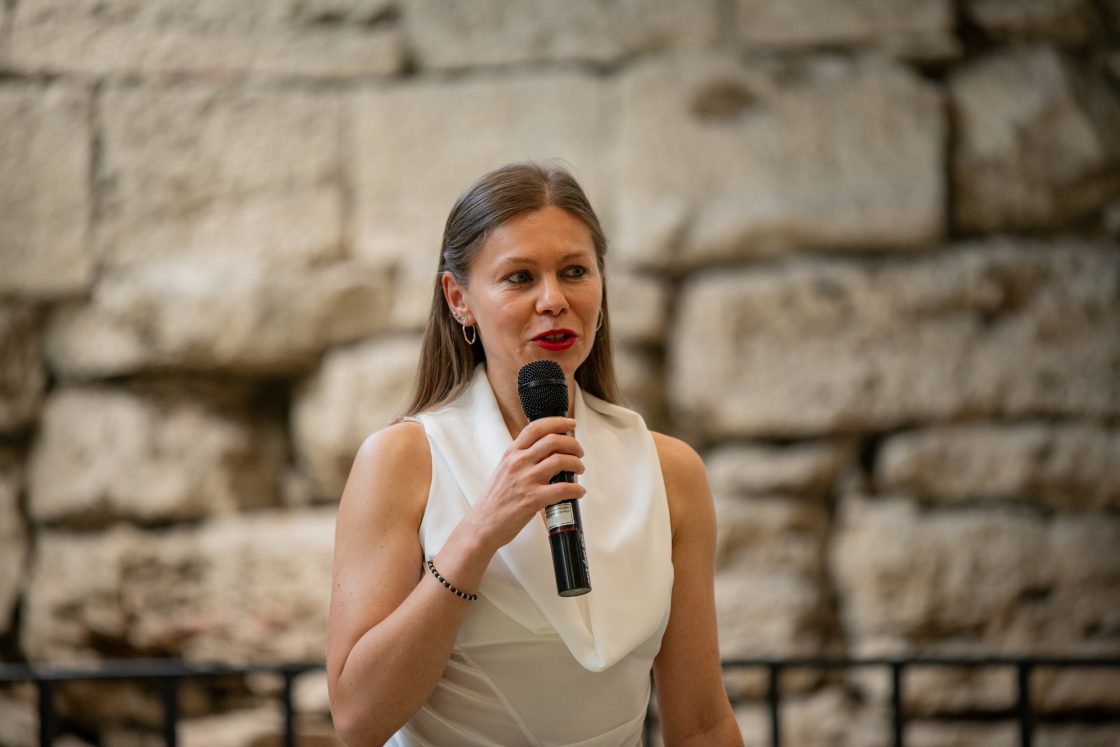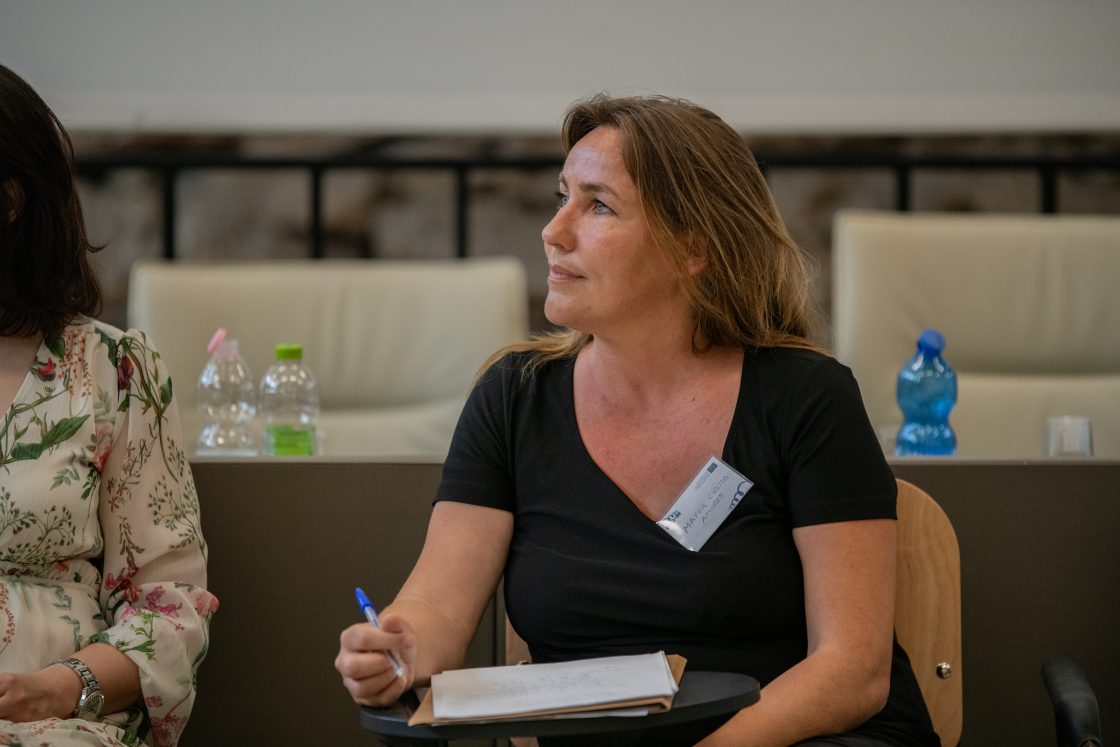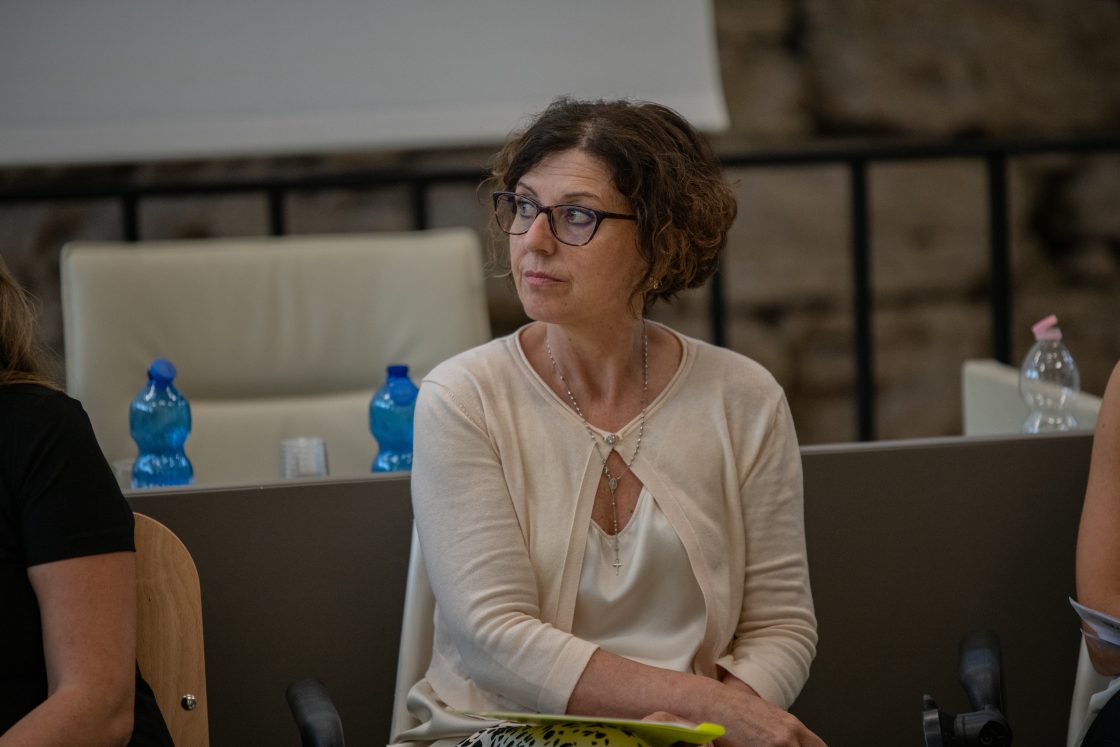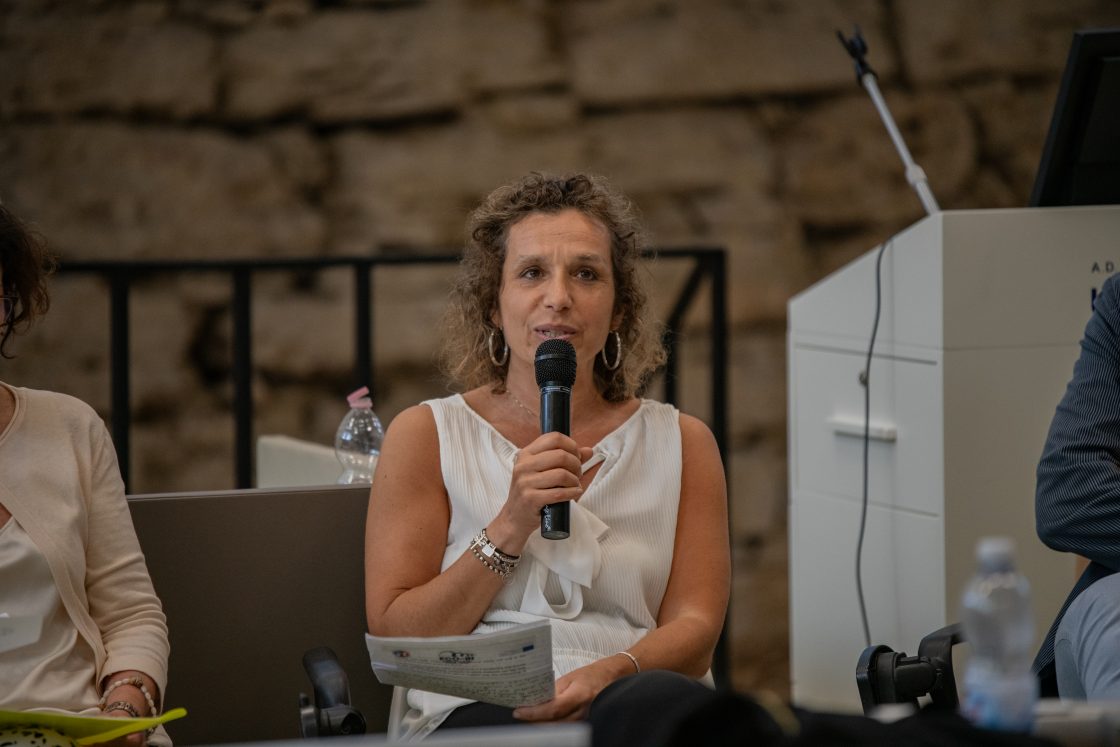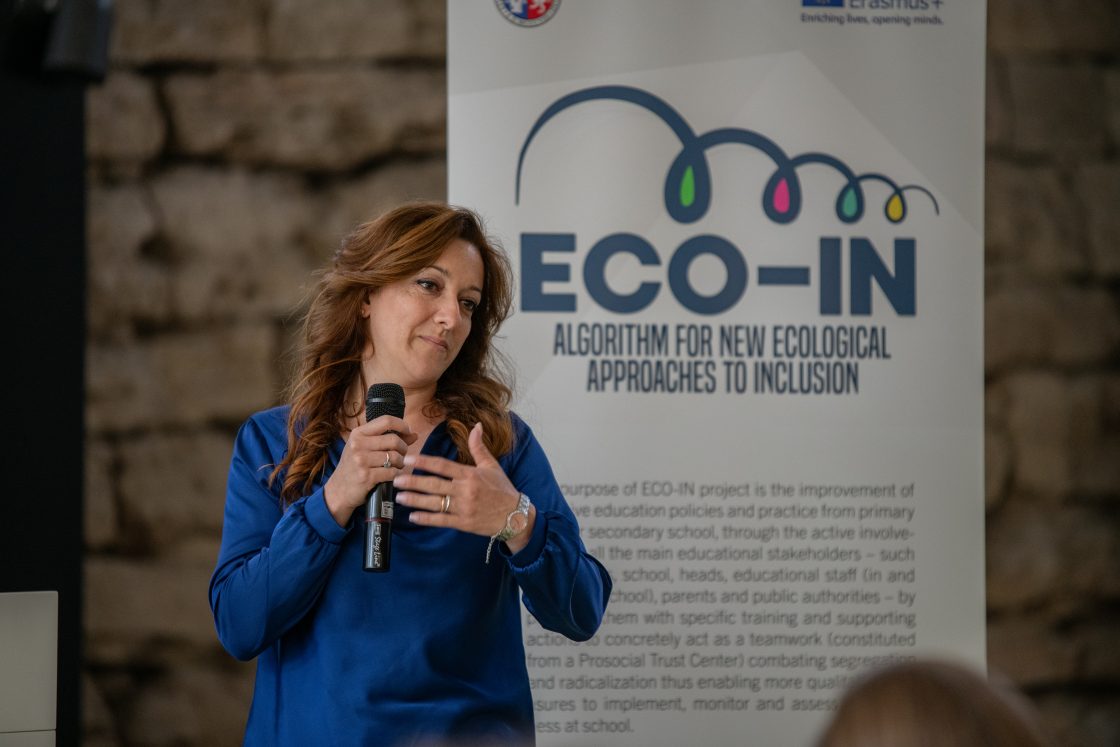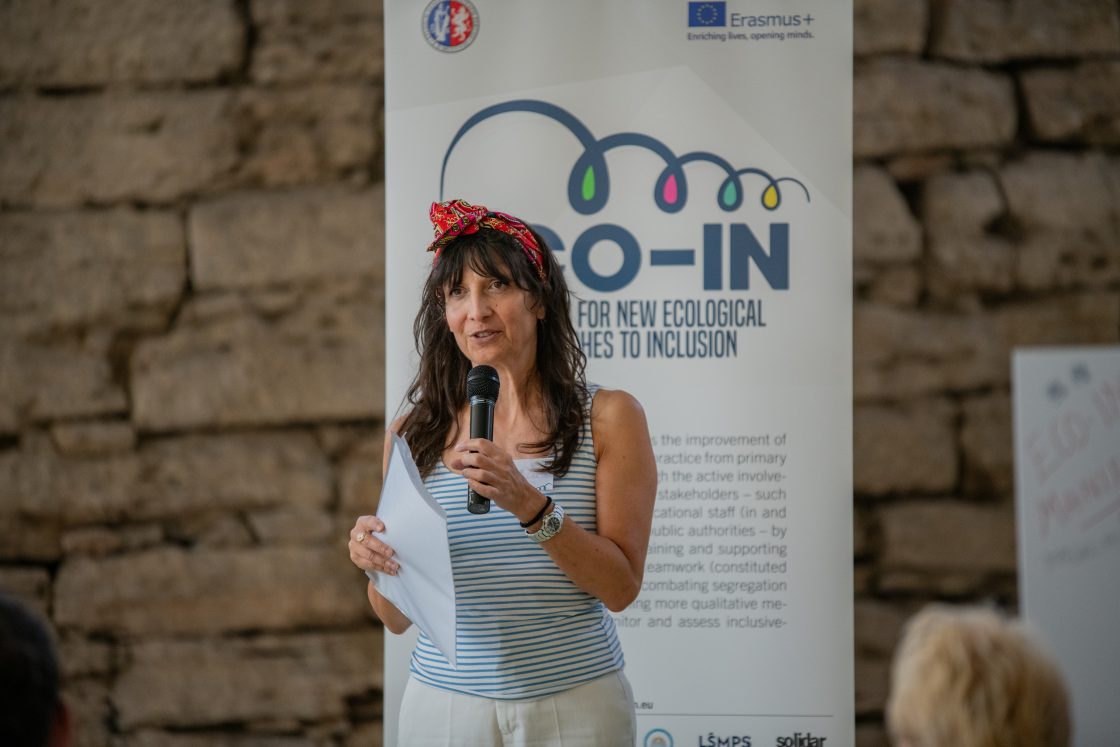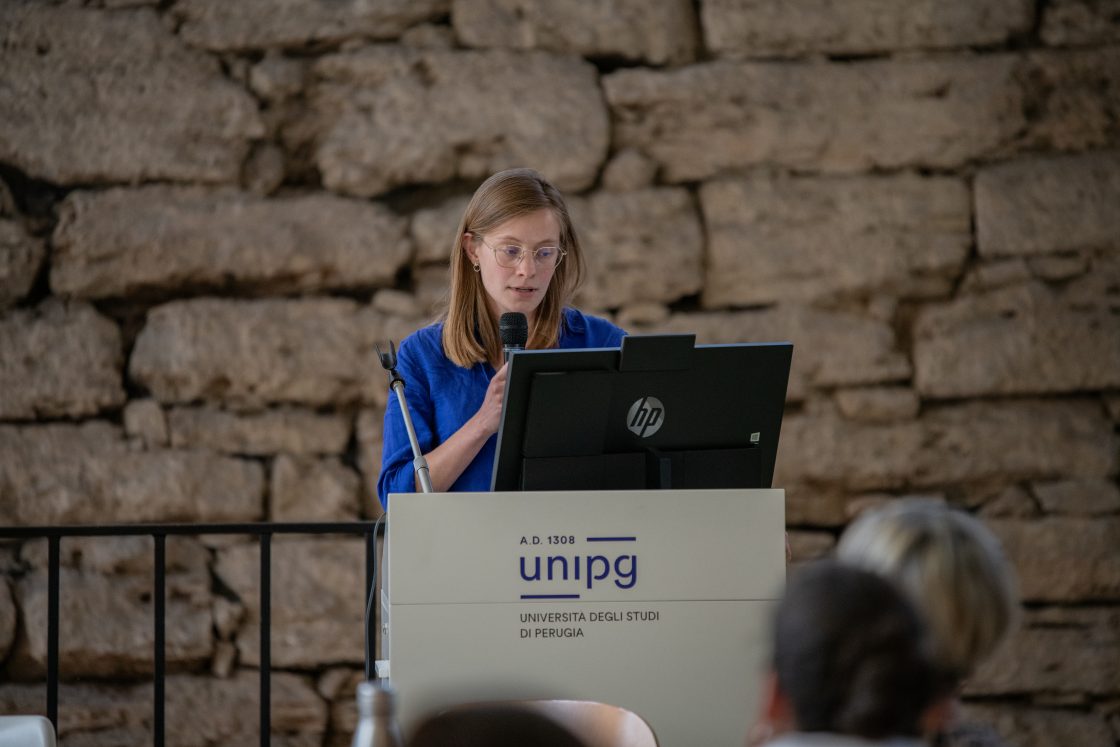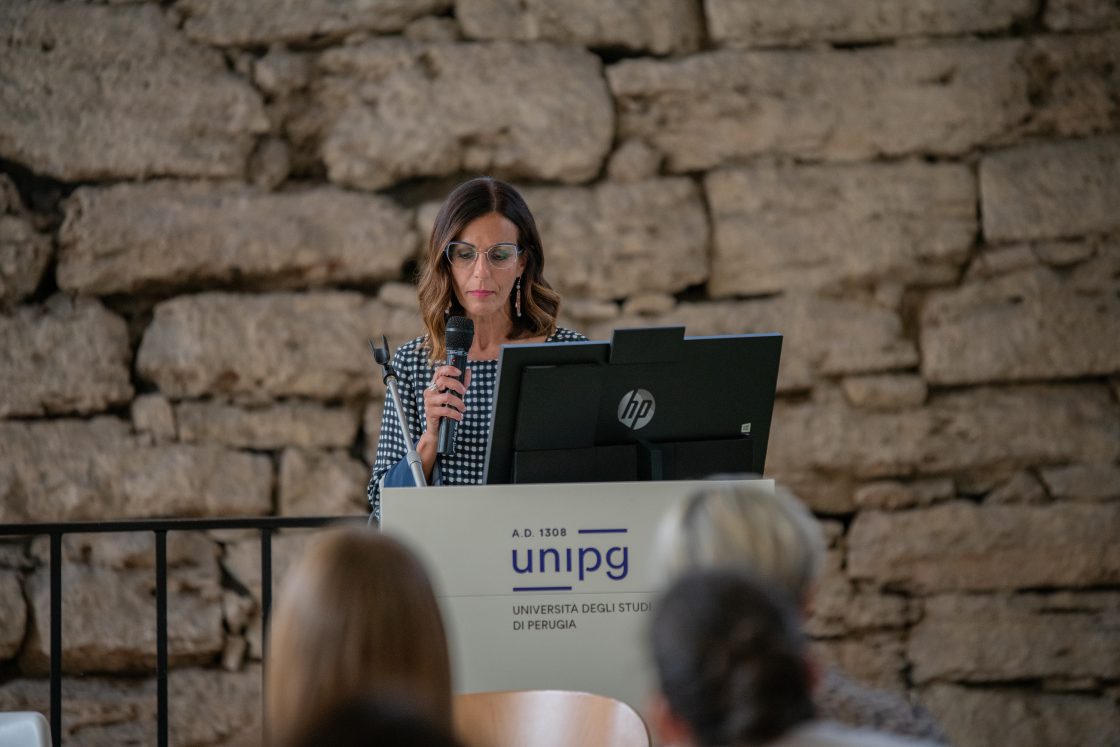The Final International Conference took place in Perugia, Italy – 27th of June 2023
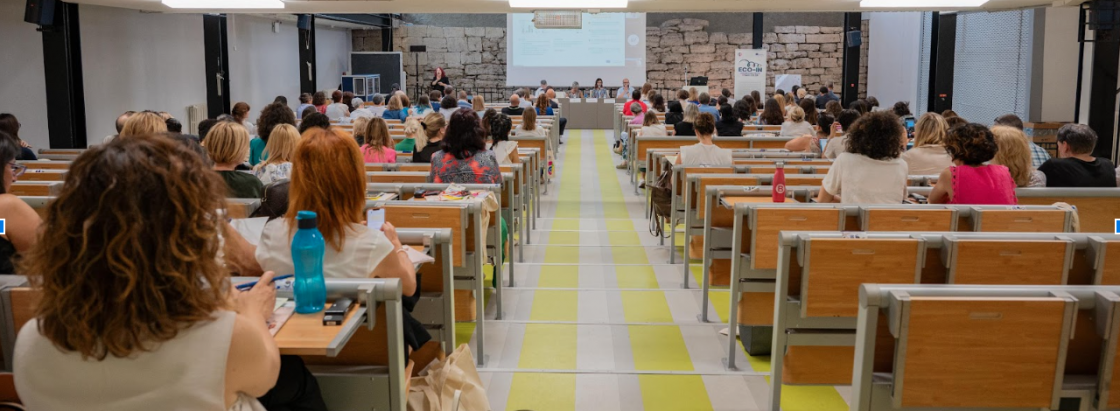
On Tuesday the 27th of June the ECO IN project International Conference took place at the Aula Magna of the Department of Philosophy, Social and Human Sciences and Training of the University of Perugia.
More than 120 persons participated among Universities teachers and students, Transnational partners, parents, head-teachers and school teachers from several schools in Umbria and Marche regions. The conference has been the occasion to not only further deepen the key topics related to the ECO IN project, thus socio-emotional learning, ecological model of school inclusion, pro-sociality, but also to report through the direct voice of the people involved the experiences of being trained as key actors in building a more inclusive school community as well as in paving the way towards the European Prosocial Trust Centres.
With the morning sessions focused on setting the scene about the ECO IN project pillars, in terms of both theoretical and scientific concepts and technical and assessment features, participants have had the chance to learn more about Prof. David Mitchell (University of Canterbury in Christchurch, New Zealand) approach towards inclusion in school, which inspired the preliminary phases of ECO IN project designing since its first steps. Thanks to the very impressive video he recorded the audience learned and reflected on how to effectively practice inclusion, by referring to Inclusive education as a multi-dimensional concept, where its successful implementation requires consideration of what could be called the ‘Magic Formula’.
Prof. Mitchell thus brilliantly explained key elements of the Formula with reference to 5As:
Adapted Curriculum: Making appropriate adaptations or modifications to the general curriculum is central to inclusive education and is probably the biggest challenge to educators.
Adapted Assessment: It is essential that assessment serve educational purposes by promoting learning and guiding teaching, not simply functioning as a tool for sorting and selecting learners for advancement.
Adapted Teaching: Inclusive education challenges educators to develop a wide repertoire of evidence-based teaching strategies, i.e., clearly specified methods that have been shown by good quality research to be effective in bringing about desired outcomes in learners. There is sound evidence that teaching strategies such as the following are effective for learners with special educational needs: co-operative group teaching, peer tutoring, supportive classroom climate, social skills training, cognitive strategy instruction, self-regulated learning, memory strategies, phonological awareness and phonological processing, behavioural approaches, functional, behavioural assessment, direct instruction, review and practice, formative assessment and feedback, assistive technology, and augmentative and alternative communication.
Acceptance: Inclusive education relies on educators, learners and their parents accepting the right of learners with special educational needs to be educated in general education classrooms and to receive equitable resourcing.
Access: For learners with physical disabilities to be included, adequate access to classrooms must be provided, e.g., ramps and lifts, adapted toilets and adequate space for wheelchairs.
After this keynote speech, participants had the opportunity to learn more about the ECO IN algorithm by Prof. Andrea Mangiatordi, from the University Milano Bicocca, who ideated and elaborated the self-assessment digital tool with the related algorithm behind it, together with Prof. Morganti and Dr. Signorelli from the University of Perugia and Prof. Cottini from the University of Urbino.
Indeed, by self-assessing themselves through different indicators about the importance and the presence of specific requisites of school inclusiveness, the several school’s stakeholders – teachers, head-teachers, parents, education policy makers – can have a clear picture of what it’s lacking, what to improve, what it’s working. By adjusting their expectations in terms of importance and presence of the inclusiveness requisites, schools can effectively plan and implement appropriate measures according to the results achieved and their future goals.
The afternoon session has been therefore focused on the practical experiences form the different European countries involved in the project, Italy, Lithuania, Romania and Spain about the training to implement the ECO IN Assessment Protocol and to start setting up the European Prosocial Trust Centres.
Through the story telling of the key actors involved in this innovative process of community activation and prosocial behaviours it has been immediately clear the importance of the preliminary self-assessment in order to not jeopardise energies and resources towards pursuing school inclusion and the subsequent promotion of prosocial approaches and attitudes in all the education stakeholders involved so as to start impacting on the usual and not always effective practices of inclusiveness in schools.
Thanks to very open and positive atmosphere parents and teachers who have taken place in the concrete actions of the ECO IN project have had the chance to intervene and testimony first-hand results already achieved in terms of improved cooperation among colleagues, better community engagement, increased capacity to understand others’ needs and expectations, especially with reference to inclusion and reduction of discriminatory practices and approaches.
The International Conference has been closed by Solidar Foundation, in the person of Alexandra Matthys who presented the Policy Recommendations and the ECO IN Manifesto which are the strategic documents aimed at further engaging key stakeholders, such as policy makers, Civil Society organisations, Educational professionals cooperating with teachers, such as psychologists, educators, counsellors, families and parents. Indeed, by signing the documents and/or advocating for the values and measures identified these key actors commit themselves to a more inclusive school environment.
In addition, a poster session freely accessible by all the participants has been set in the beautiful terrace of the University Department, where many of the persons present were able to read the concrete results achieved within the project and learn how further develop skills and competences to fully practice inclusion in education.
